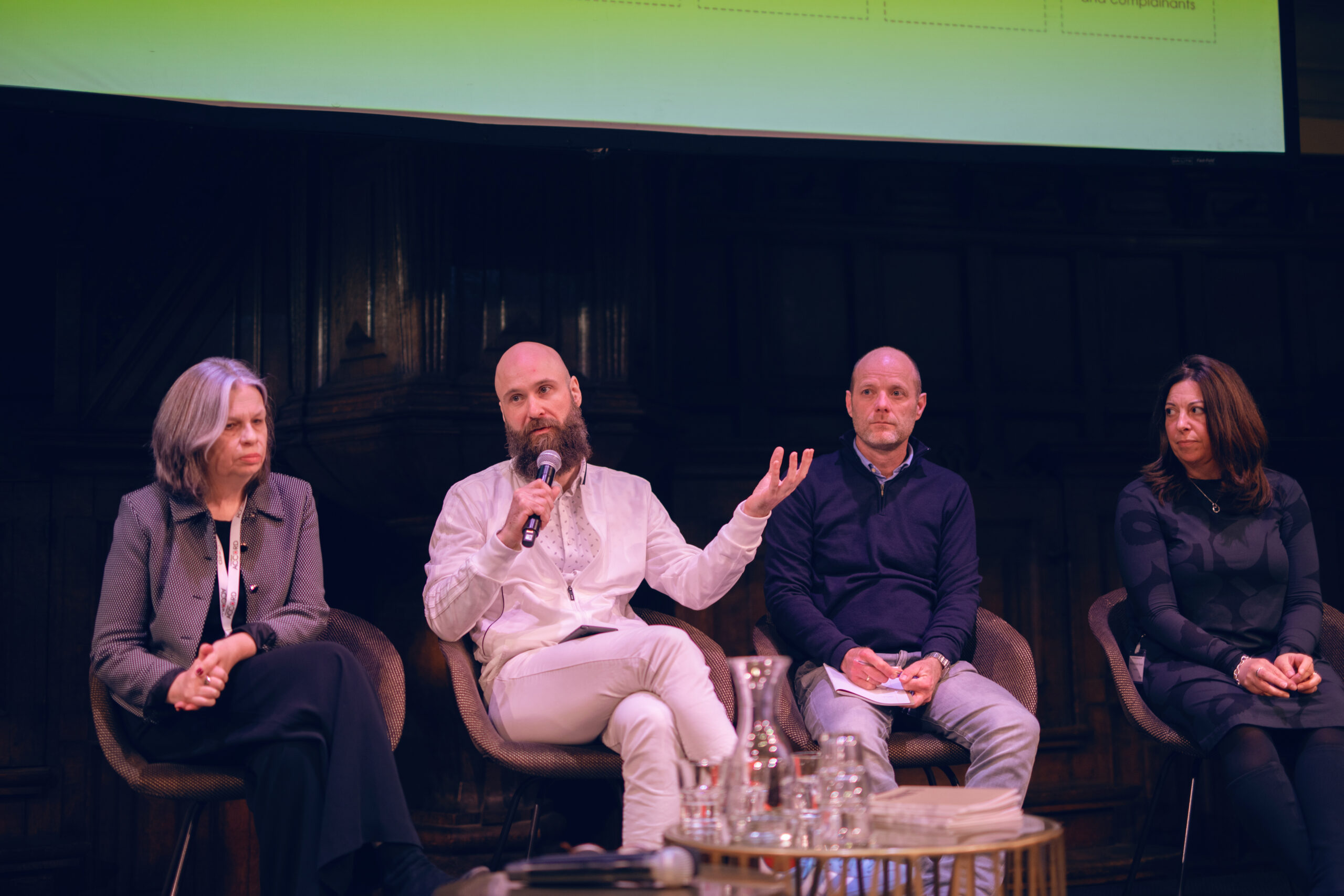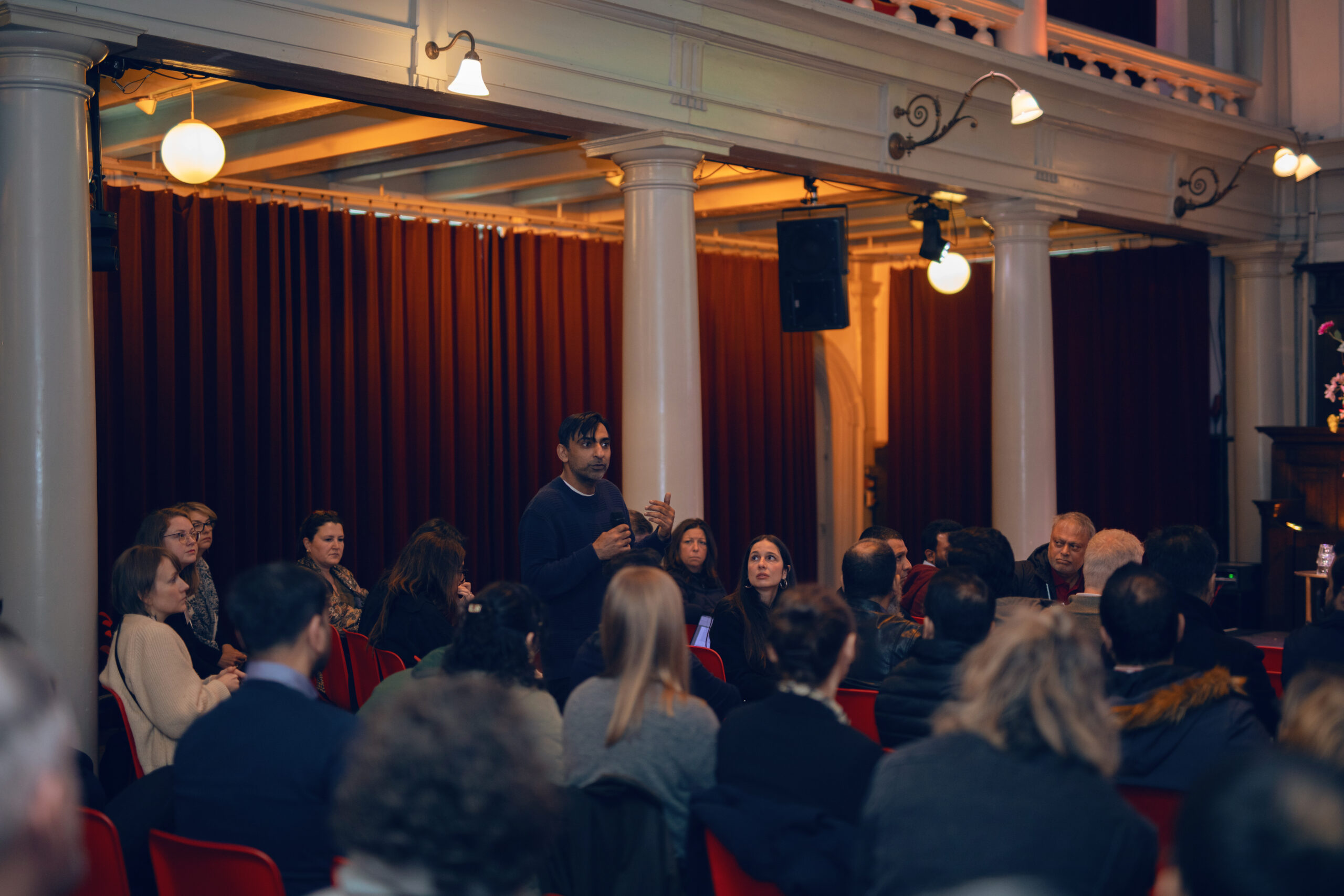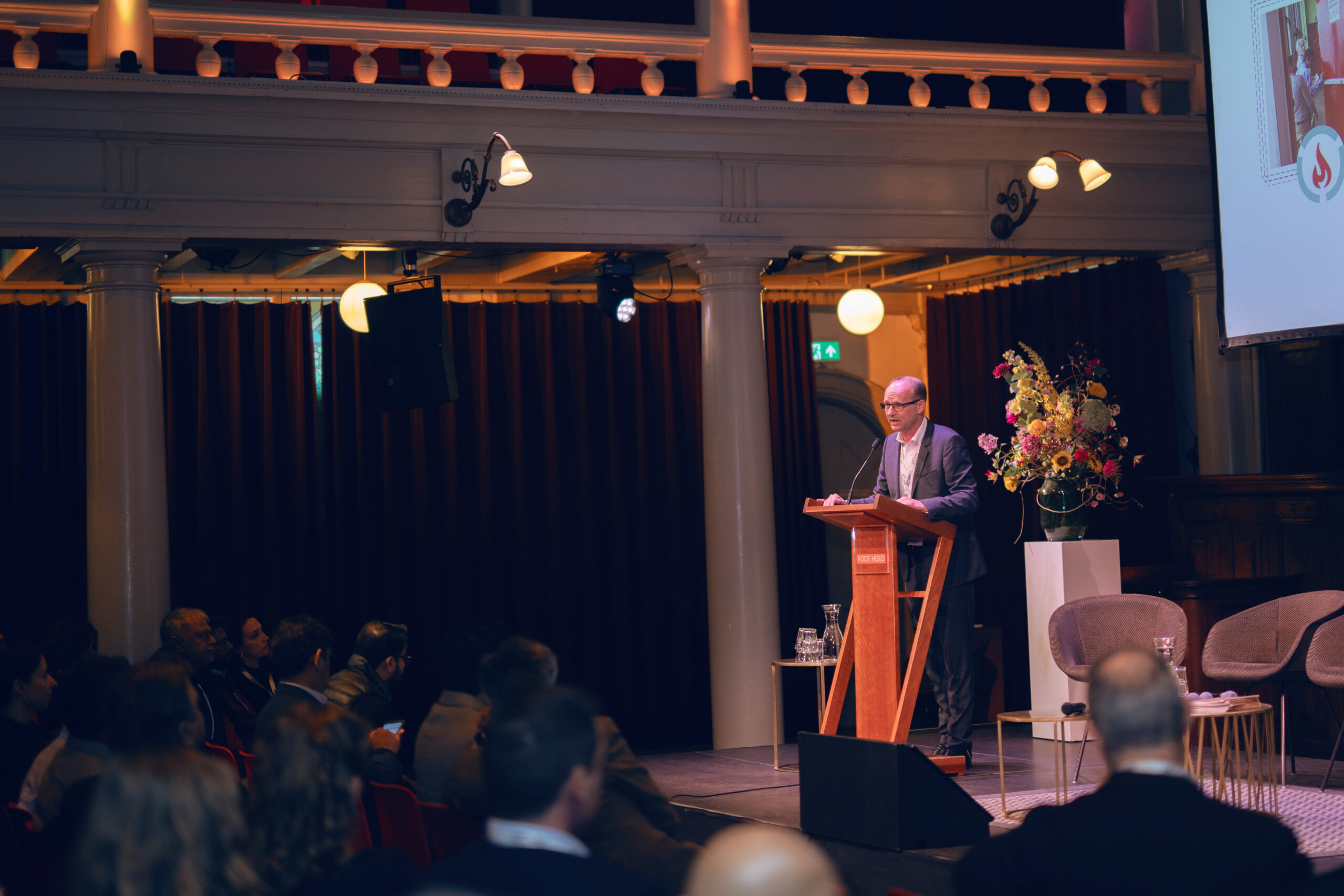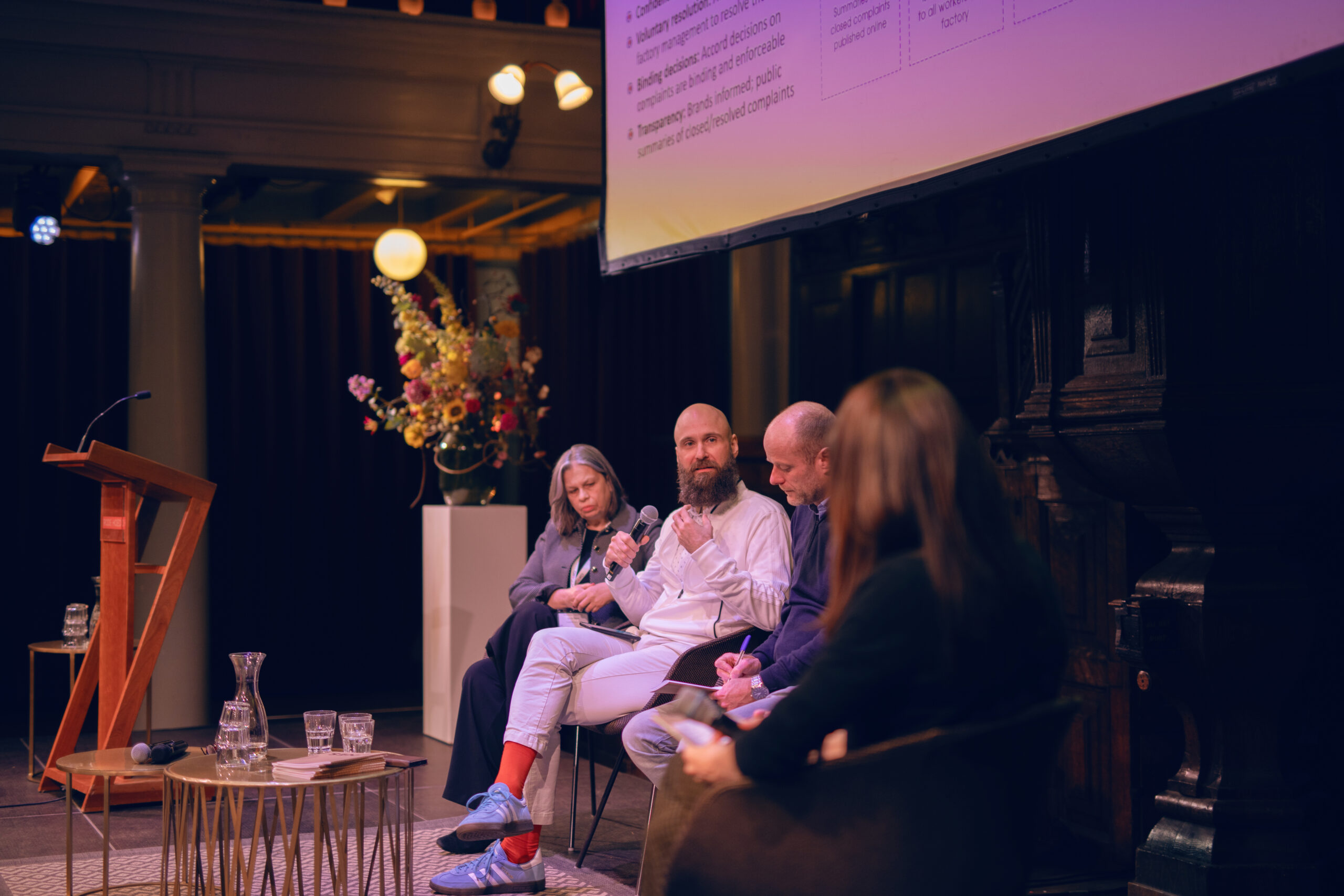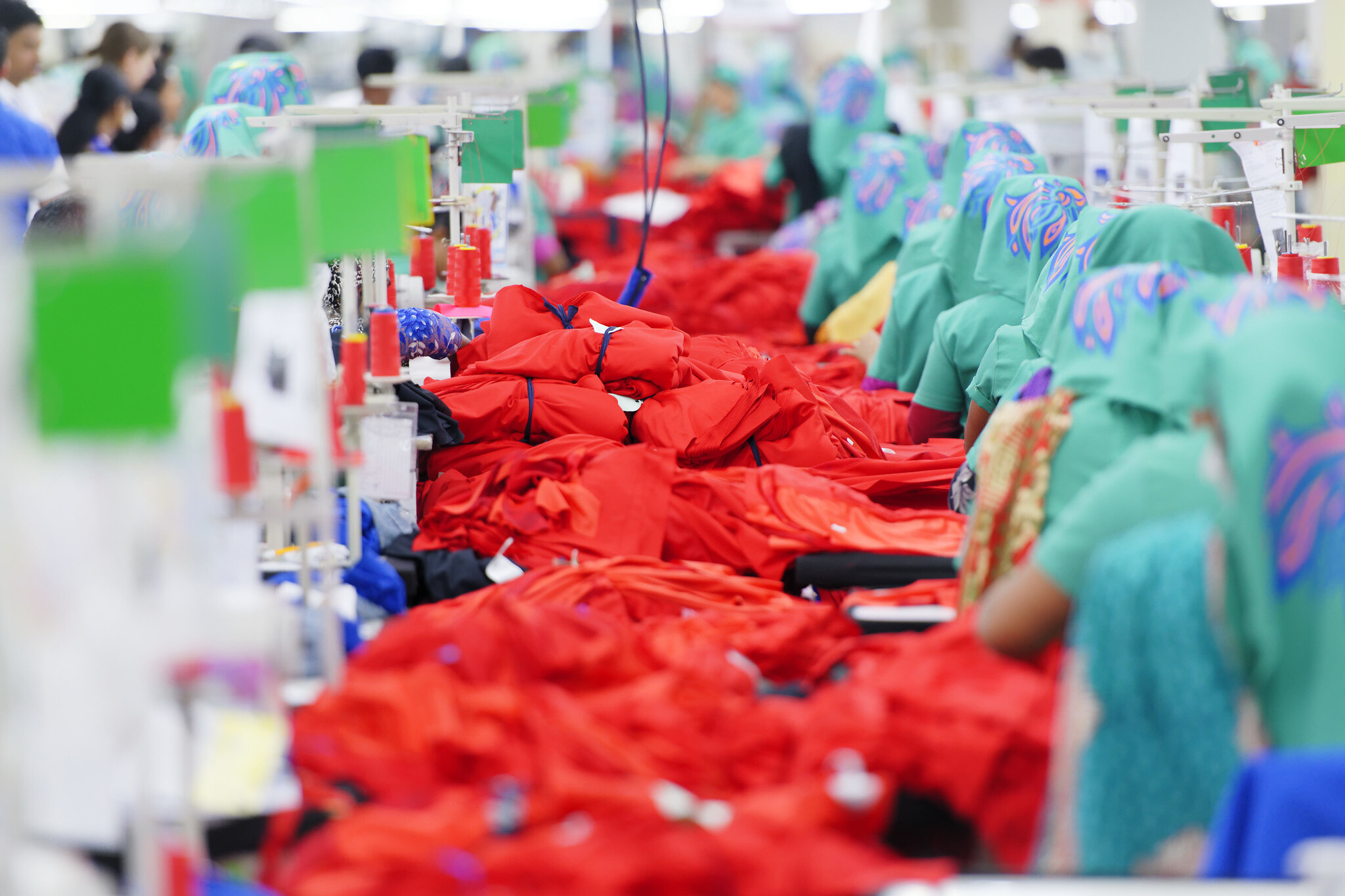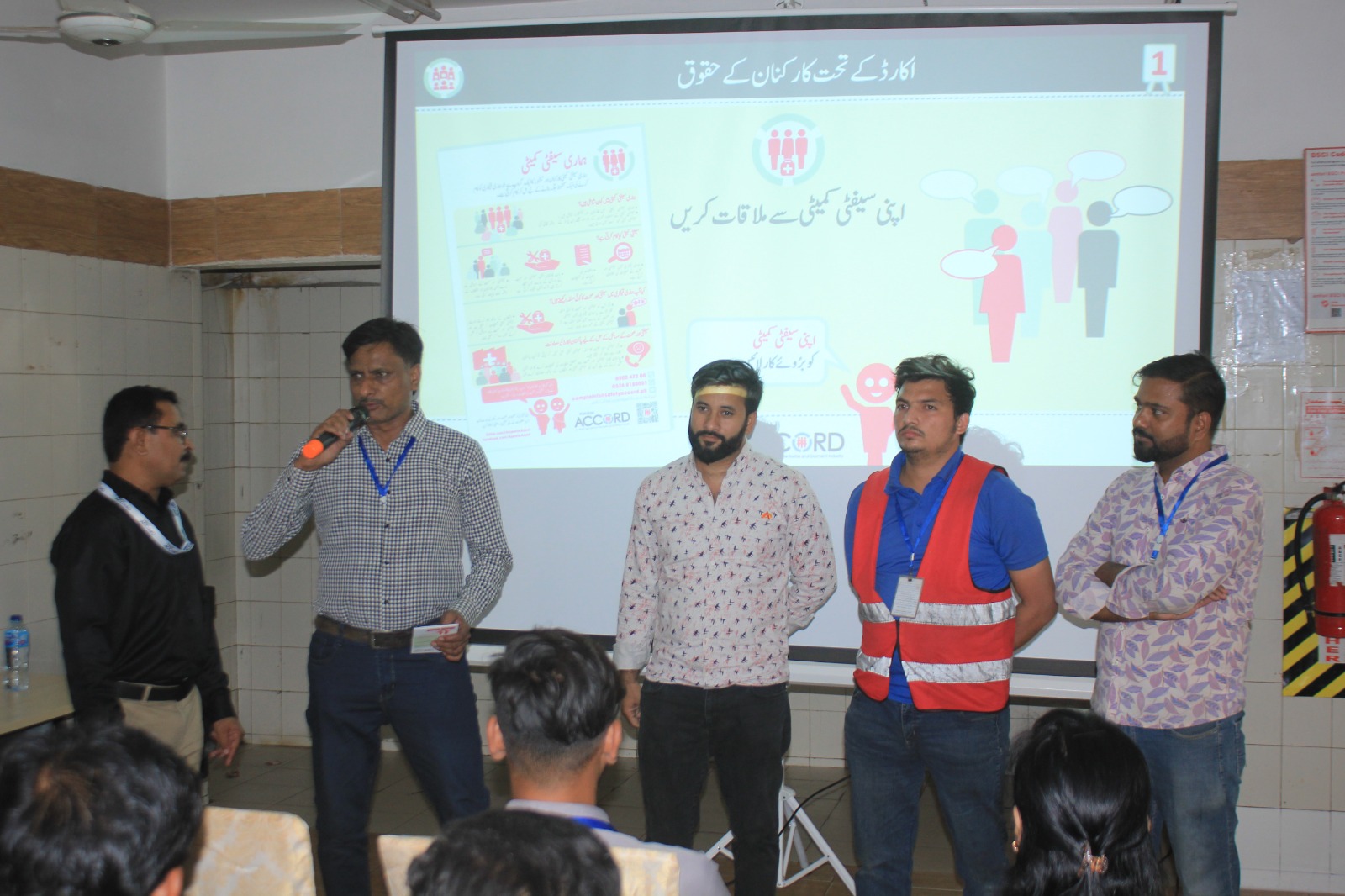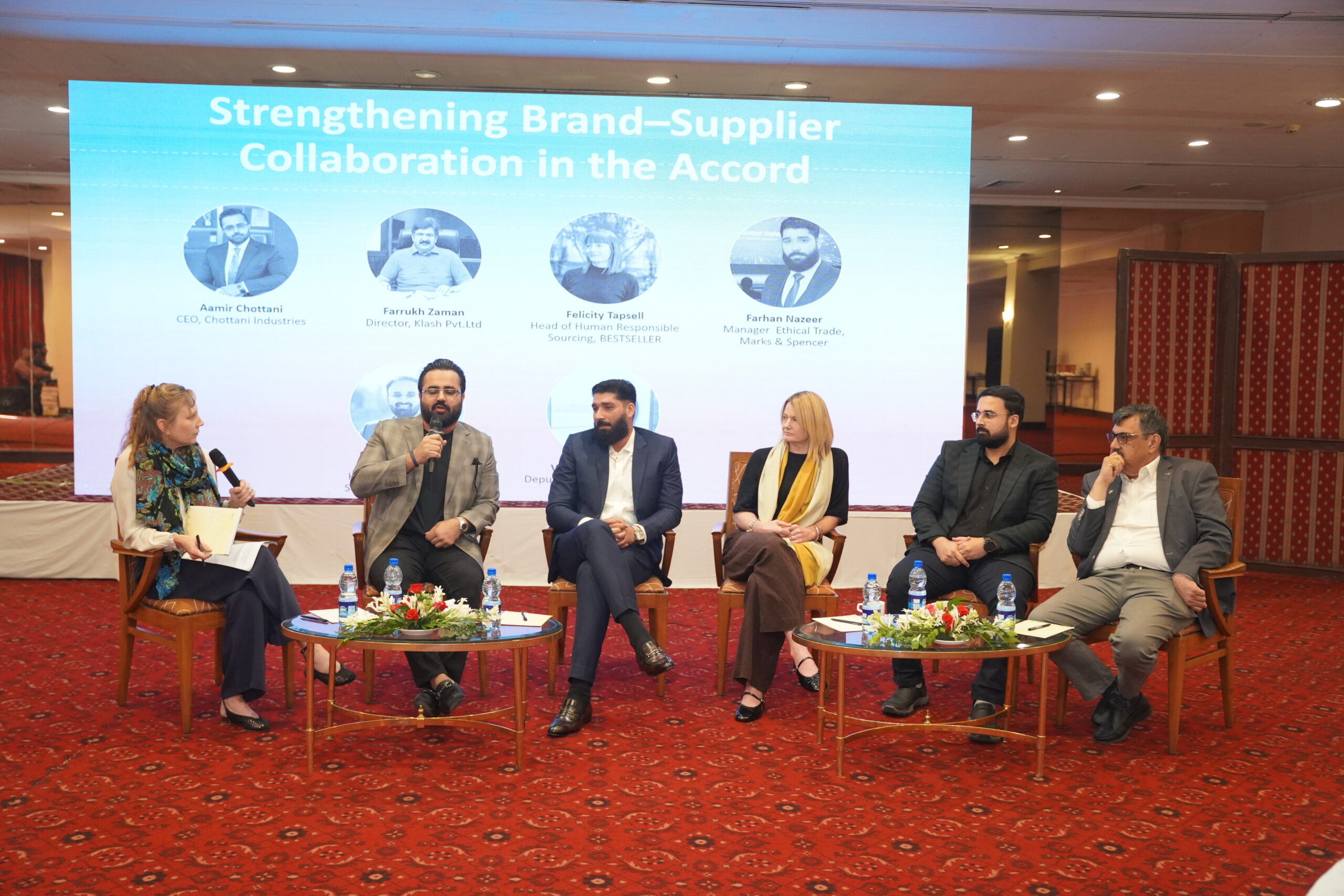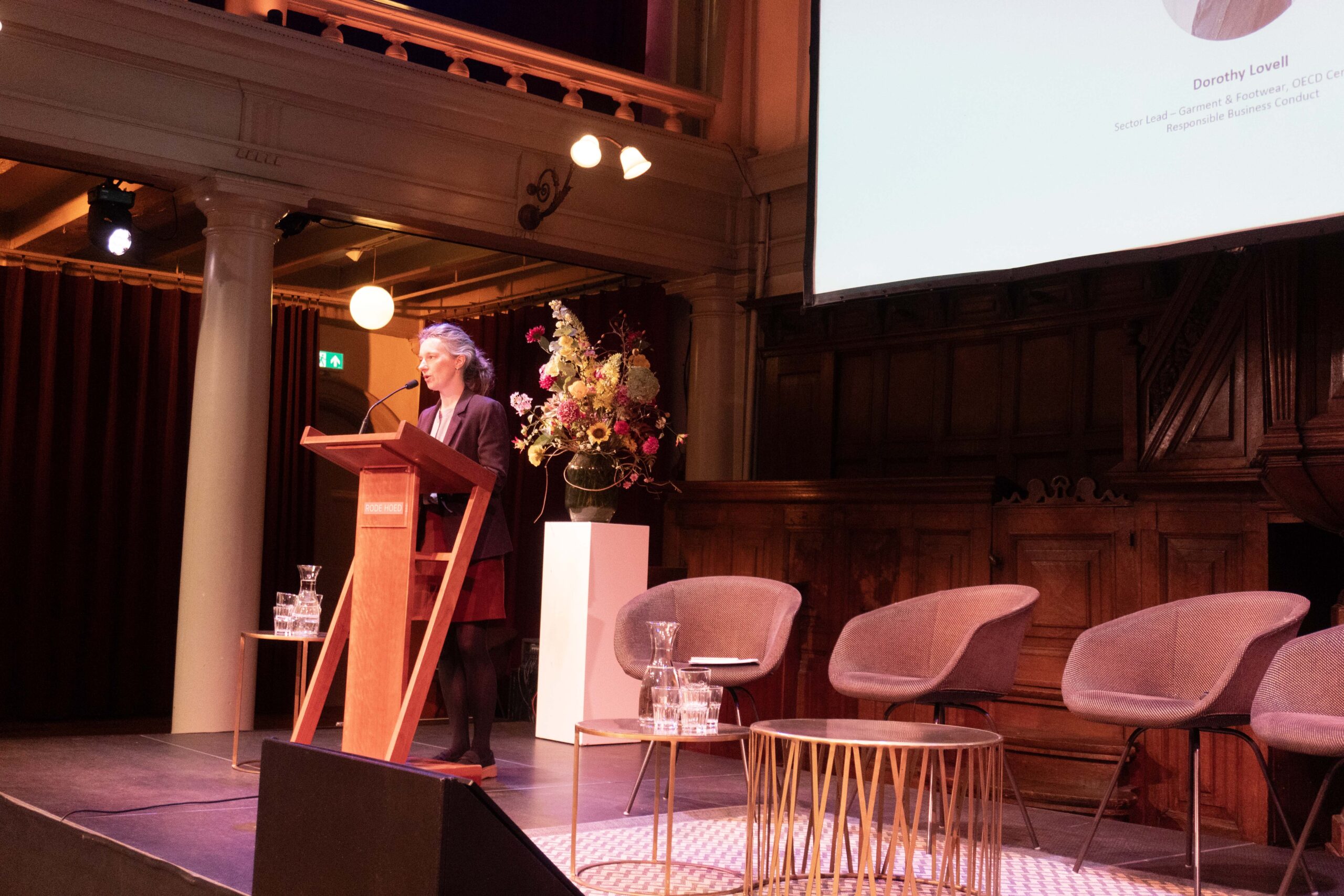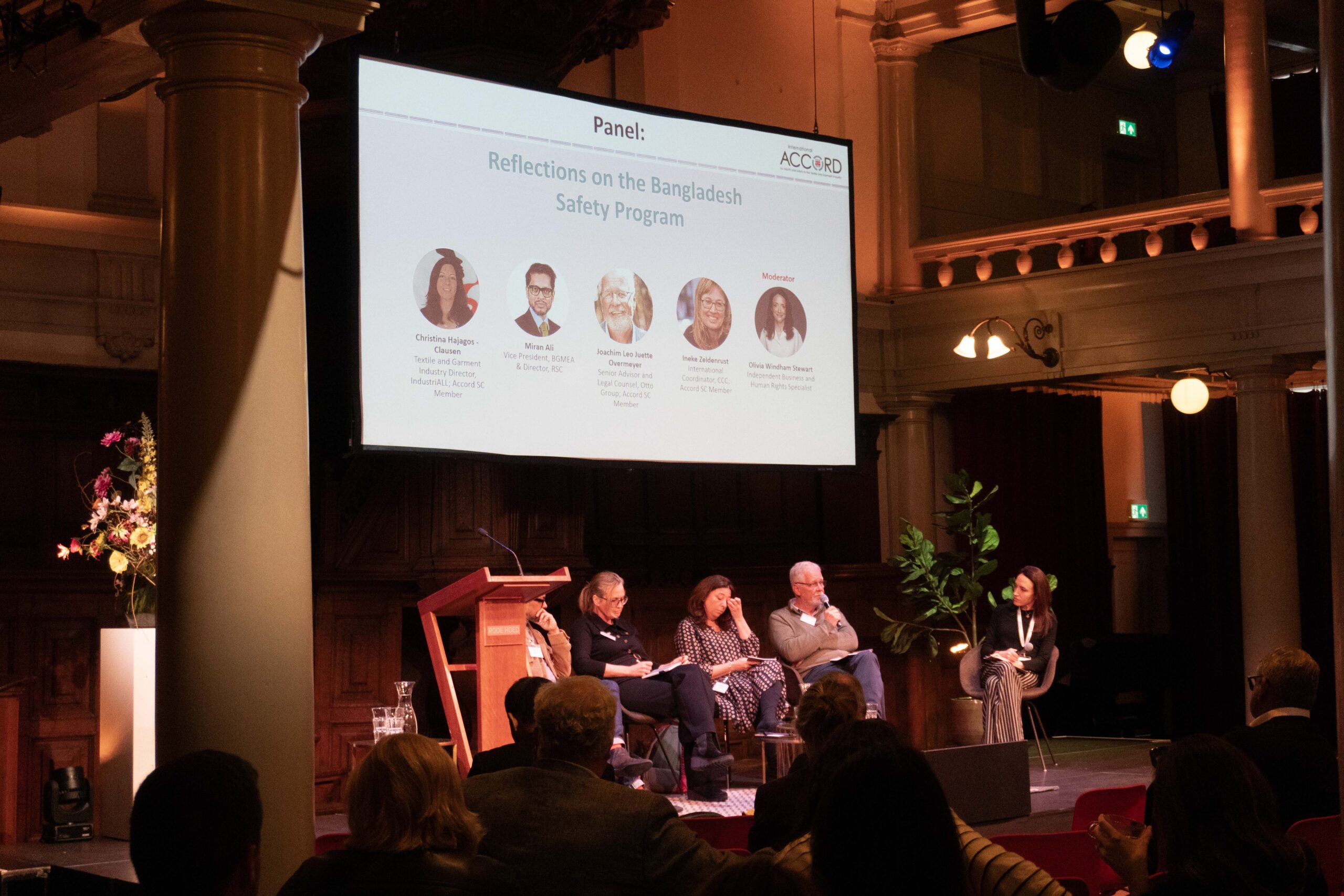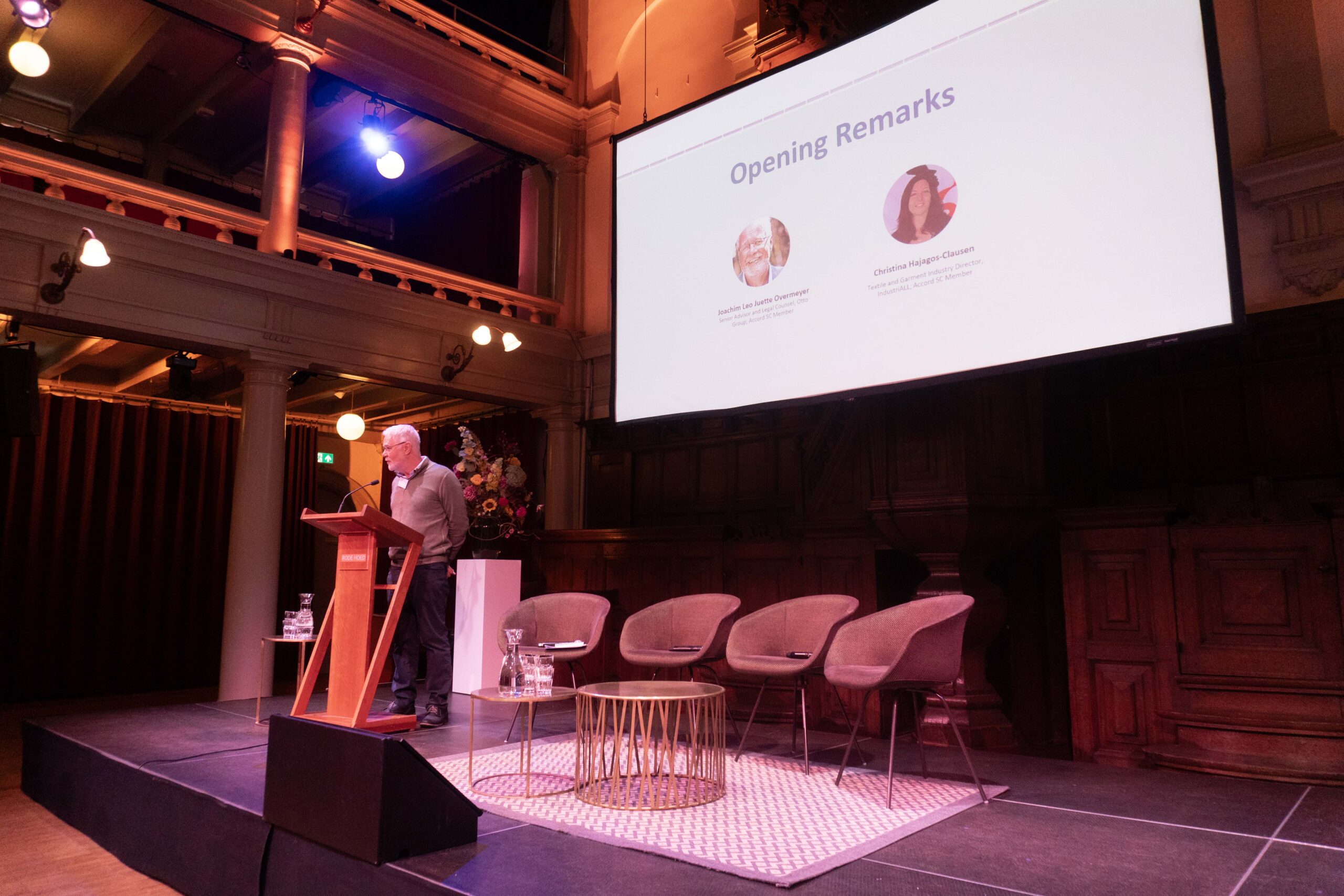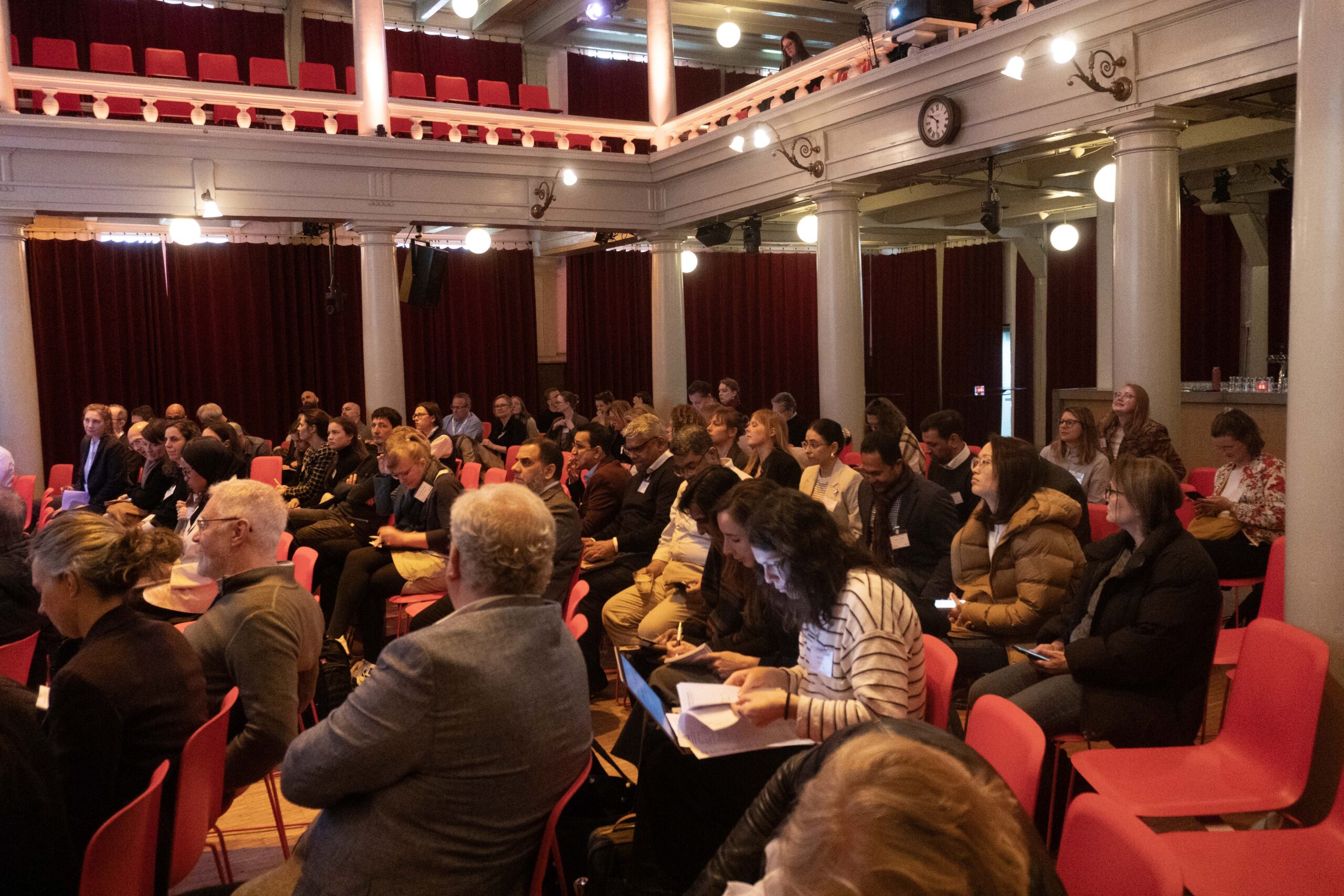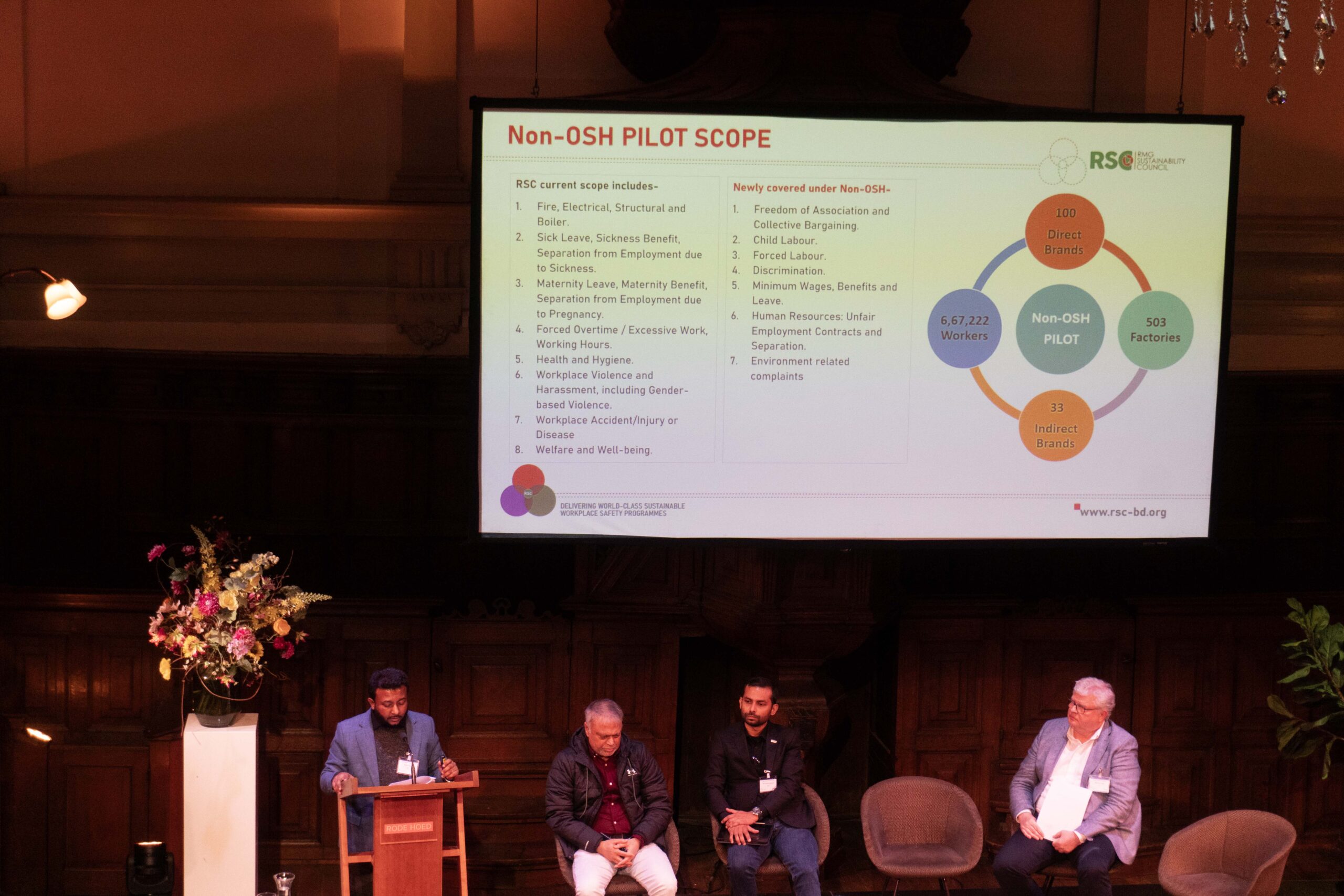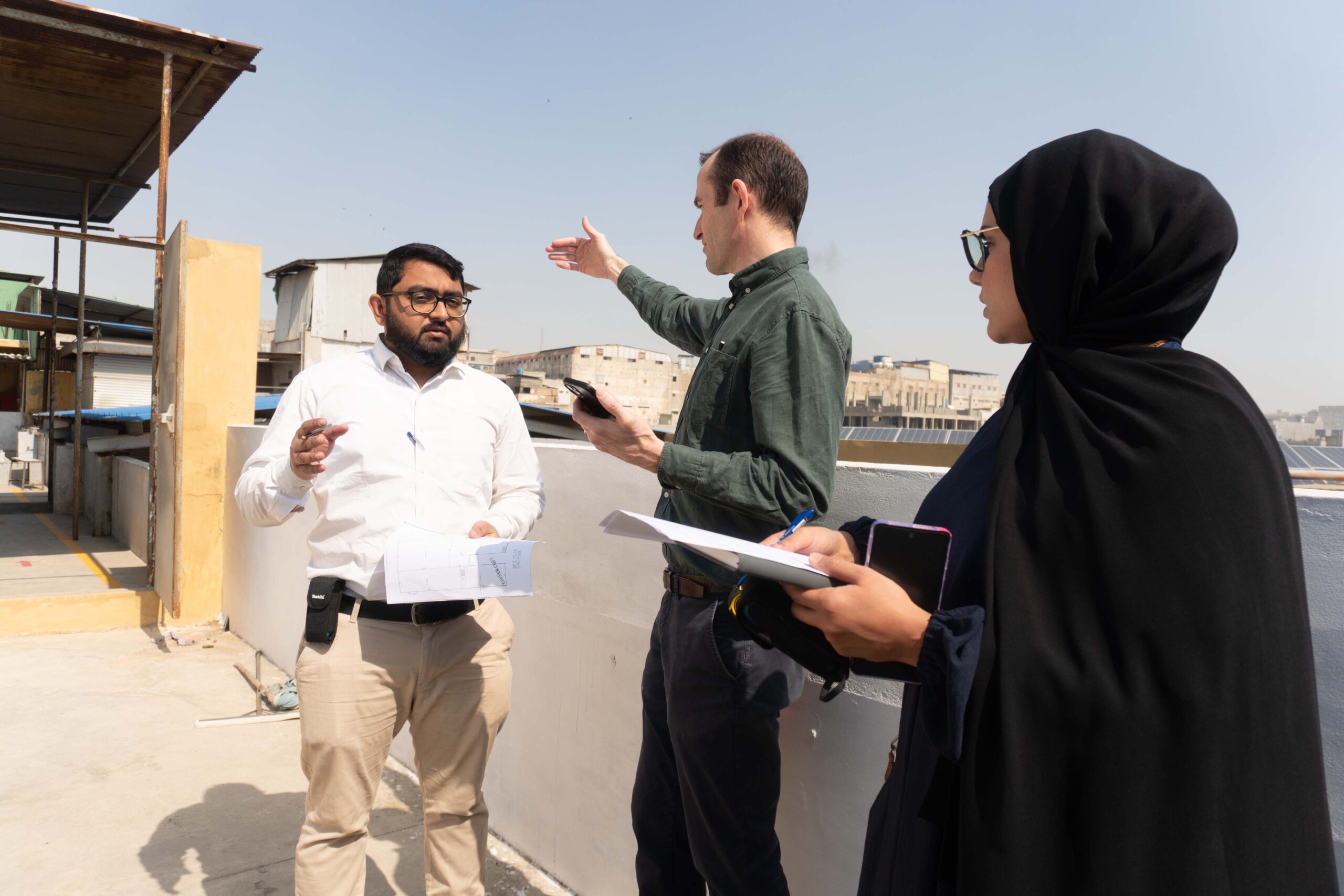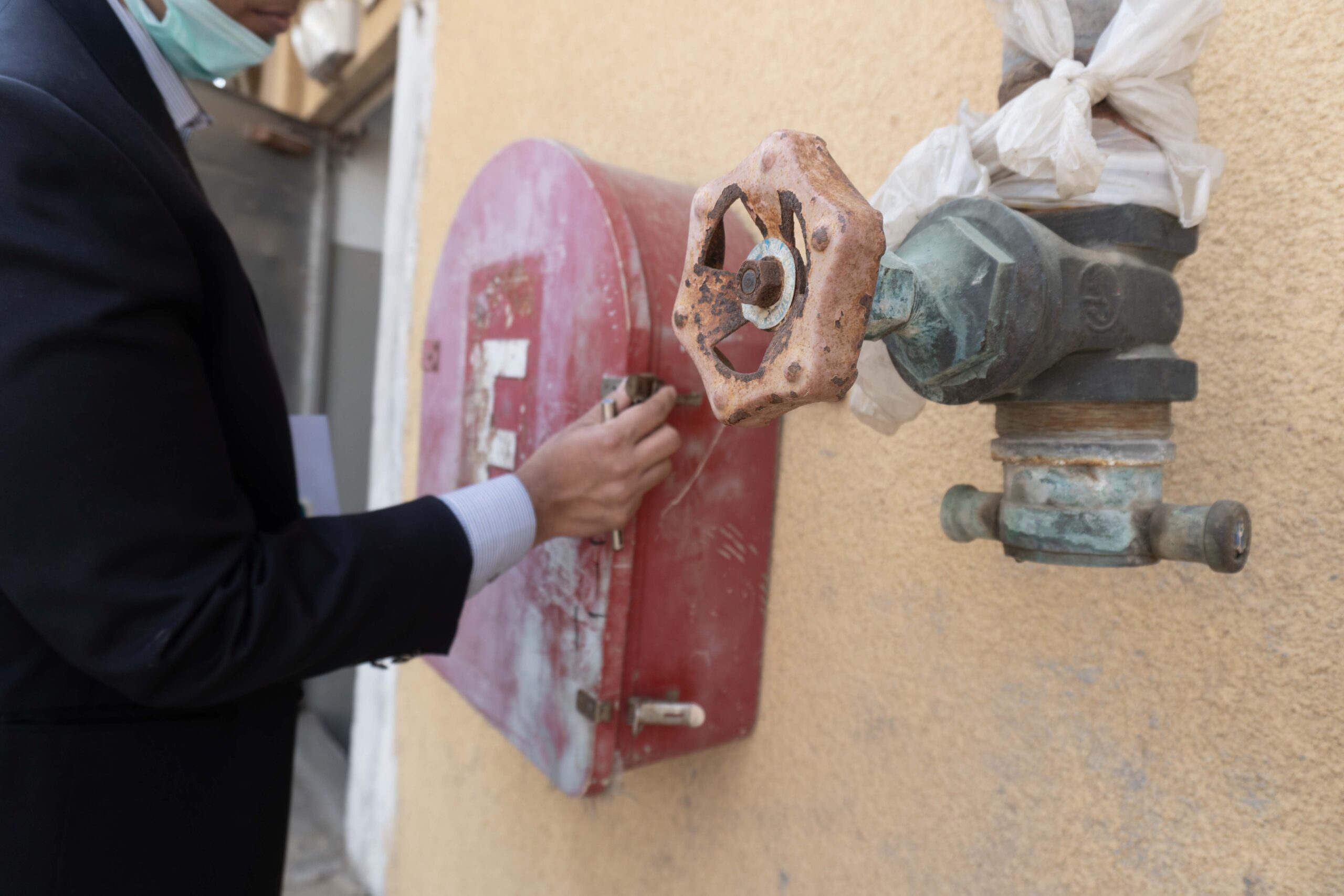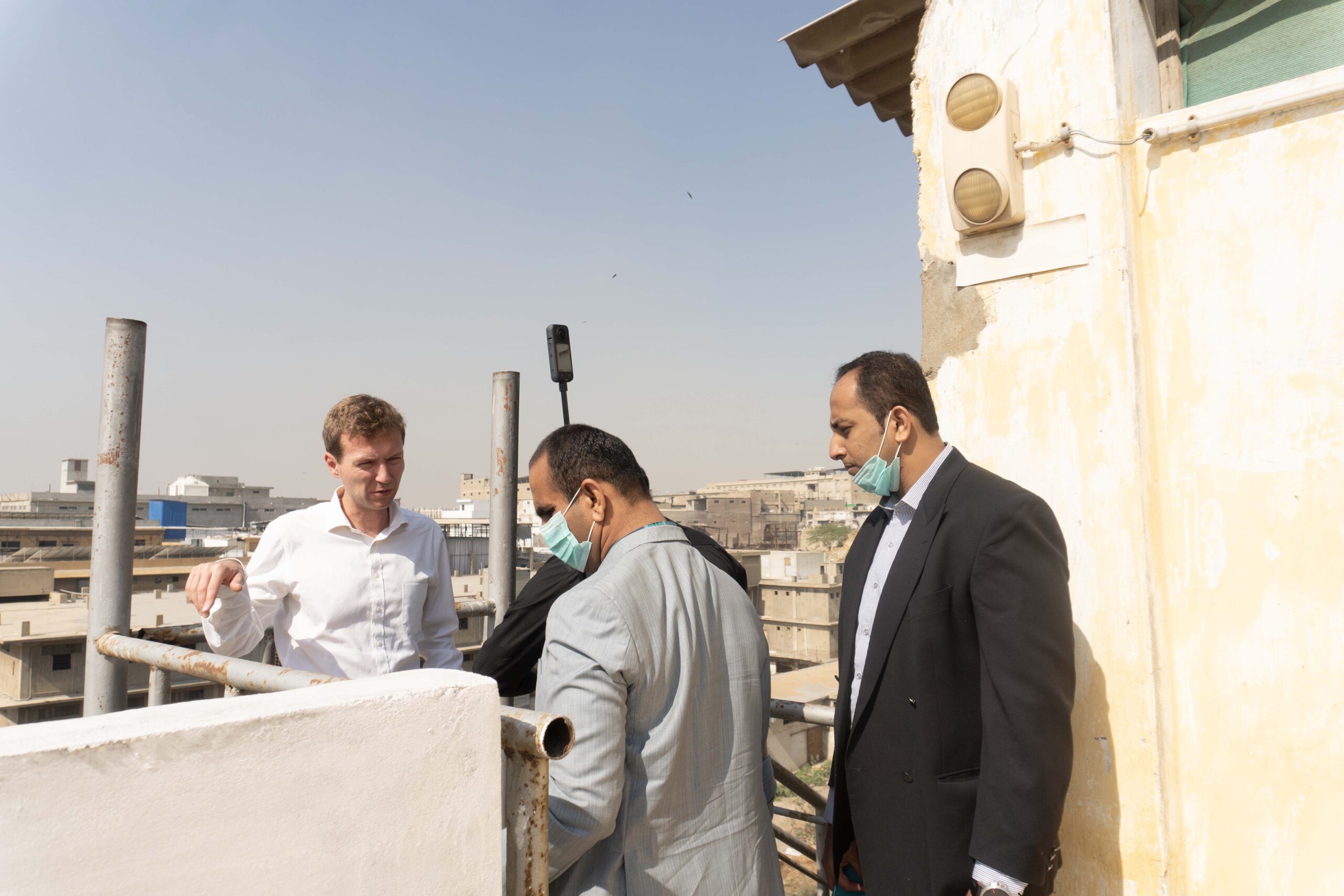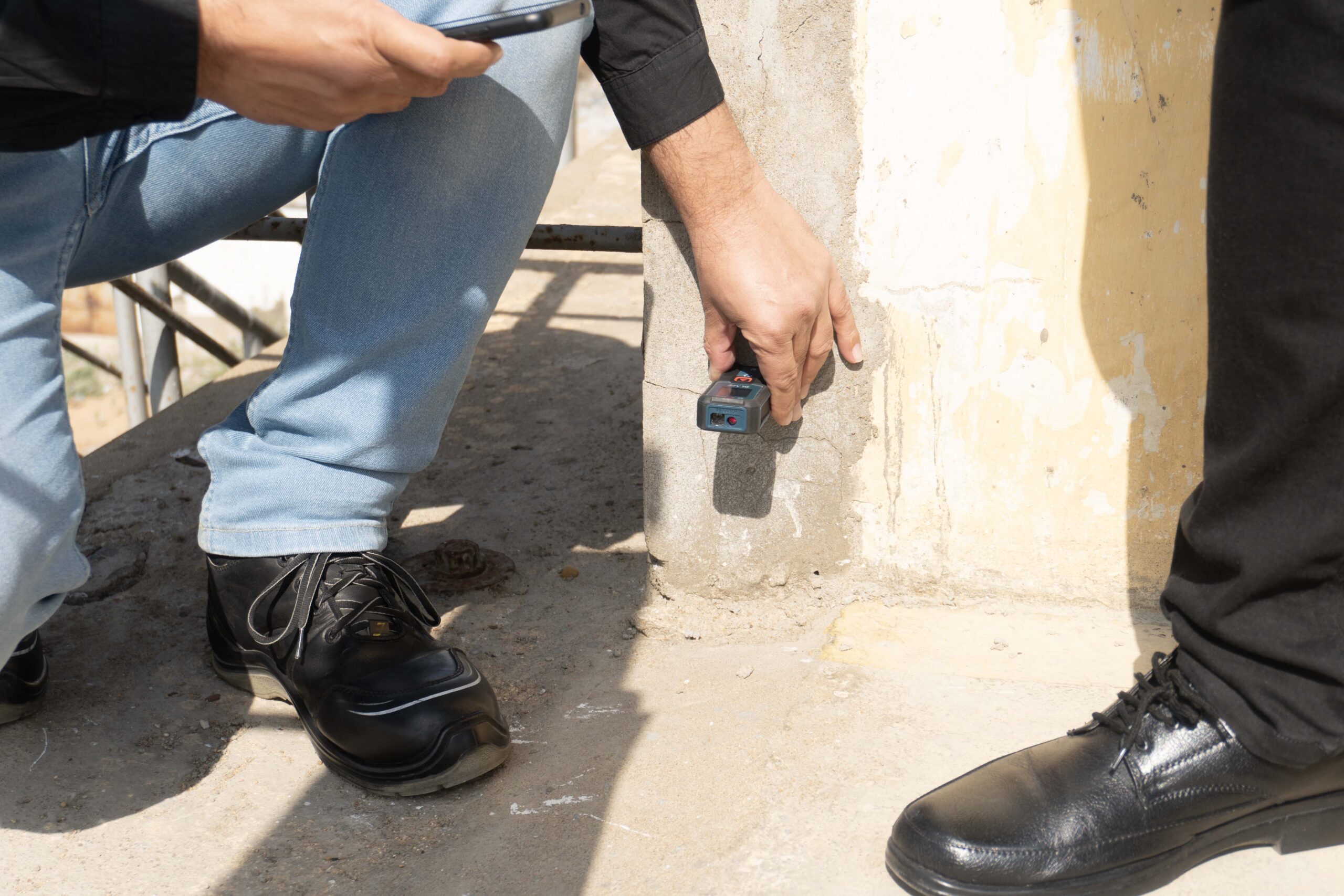Day 2 Recap: Accord All Signatory Meeting 2024
Updates

The International Accord held its All Signatory Meeting 2024 on the 25 and 26 of April 2024 at the Rode Hoed in Amsterdam, the Netherlands. The purpose of the event was to update participants about the key developments on the operations and implementation of the Accord’s Country-Specific Safety Programs (CSSPs) in Bangladesh and Pakistan.
26 April marked the second day of the International Accord‘s All Signatory Meeting highlighted the Pakistan Accord and welcomed the participation of over 30 suppliers from the Pakistani textile and garment industry.
The event brought together global brands and retailers including Adidas, Mango, Primark, Lidl, Matalan, PVH, Puma, Zalando, Kik Textilien, GAP Inc, ASOS, AEO Inc. H&M, Inditex and Bestseller.
Participation from the Pakistani textile and garment industry included nearly 30 representatives. Additionally, this day saw representation from the International Apparel Federation (IAF).
The day began with opening remarks from Michelle Tarry of American Eagle Outfitters Inc (AEO) emphasising the key role of the Accord’s remediation plans and worker training in promoting and maintaining workplace safety at their sourcing facilities. Tarry further underscored AEO’s commitment to the Pakistan Accord, stating:
We are in a position to extend the achievements from Bangladesh to Pakistan. While our production in Pakistan has been limited thus far; our recent visits have left us impressed with the industry’s investments in safety infrastructure, sustainability, and innovation. In the coming years, we see significant growth potential in Pakistan and remain committed to the well-being of those making our products. The Pakistan Accord’s inspection program, training initiatives, and complaints mechanism will be instrumental in this journey.
Koen Oosterom and Zulfiqar Shah, offered updates on the operations of the Pakistan Accord, followed by a discussion on the inspections and remediation programs by the Accord’s George Faller, Colm Quinn, and Veronique Camerer who elaborated on the importance of planning factory remediation and the available tools to ensure that it is financially feasible for factories to correct safety risks.
The session concluded with insights from Zubaida Machiyara (Fashion Knit Industries) and Yasir Yaqoob (Lucky Textile Mills), who shared their experiences of participating in the initial inspections under the Pakistan Accord.
The panel on the Accord’s workplace programs featured observations by David Reiner (Zalando), Matthijs Crietee (IAF: International Apparel Federation), Christina Hajagos-Clausen (IndustriALL Global Union ), and Kirstine Drew (Pakistan Accord) who echoed the importance of collaboration among all actors in ensuring access to remedy through the Accord’s complaints mechanism.
The last session featured valuable recommendations from suppliers to implement the Pakistan Accord. Key suggestions emphasised prioritising transparency, facilitating knowledge exchange, nurturing business stability, and embracing collaborative models tailored to accommodate facilities of all sizes.
Muhammed Rehan Ahmendani (Executive Director, Synergies Worldwide) shared:
“The arrival of the Accord in Pakistan is not a challenge but an opportunity. It is logical to understand that a safer workforce means more brands and, consequently, more business. The Accord is skillful and focuses on fostering strong business relations between brands and suppliers. Moving forward, I recommend that brands remain committed to the program and embrace new ideas to ensure worker safety, with a special focus on digitisation.”
We thank our panelists, Azfar Hasan (Matrix Sourcing), Kaschif R. Israr (Euro Centra Pakistan), Aamir Chottani (CHOTTANI INDUSTRIES.), Muhammed Rehan Ahmedani (Synergies Worldwide), Michael Bride and Veronique Camerer for their invaluable insights.
Lastly, we thank all attendees for their openness, insights, and recommendations, which are crucial to effectively implementing the Pakistan Accord and contributing to a safer garment and textile industry.
We thank our moderator, Olivia Windham Stewart and the Amerpodia team for the organisational support on this event.
For more information, contact:
- media@internationalaccord.org
- Mini Dixit, Communications Advisor: mini.dixit@internationalaccord.org
Related updates
October 16, 2025
Safe exits, unlocked gates, functioning alarms, effective fire separation, and strong emergency preparedness are essential for the health and safety of every worker, within and beyond the garment industry.
August 11, 2025
This briefing provides updates on the number of signatory brands and covered factories, the rollout of Workplace Programs, and recent events organised by the Pakistan Accord team.
May 28, 2025
The International Accord’s All Signatory Meeting was dedicated to insights on the progress and operations of the Accord’s country program in Bangladesh and Pakistan, alongside exploring opportunities to expand the Accord’s scope and impact.
October 23, 2025
On 23 October 2025, the Pakistan Accord hosted a Brand-Supplier Roundtable at the Avari Hotel in Lahore, bringing together over 50 brand representatives and 30 key suppliers.
October 16, 2025
Safe exits, unlocked gates, functioning alarms, effective fire separation, and strong emergency preparedness are essential for the health and safety of every worker, within and beyond the garment industry.
May 28, 2025
The International Accord’s All Signatory Meeting was dedicated to insights on the progress and operations of the Accord’s country program in Bangladesh and Pakistan, alongside exploring opportunities to expand the Accord’s scope and impact.
Day 1 Recap: Accord All Signatory Meeting 2024
Updates
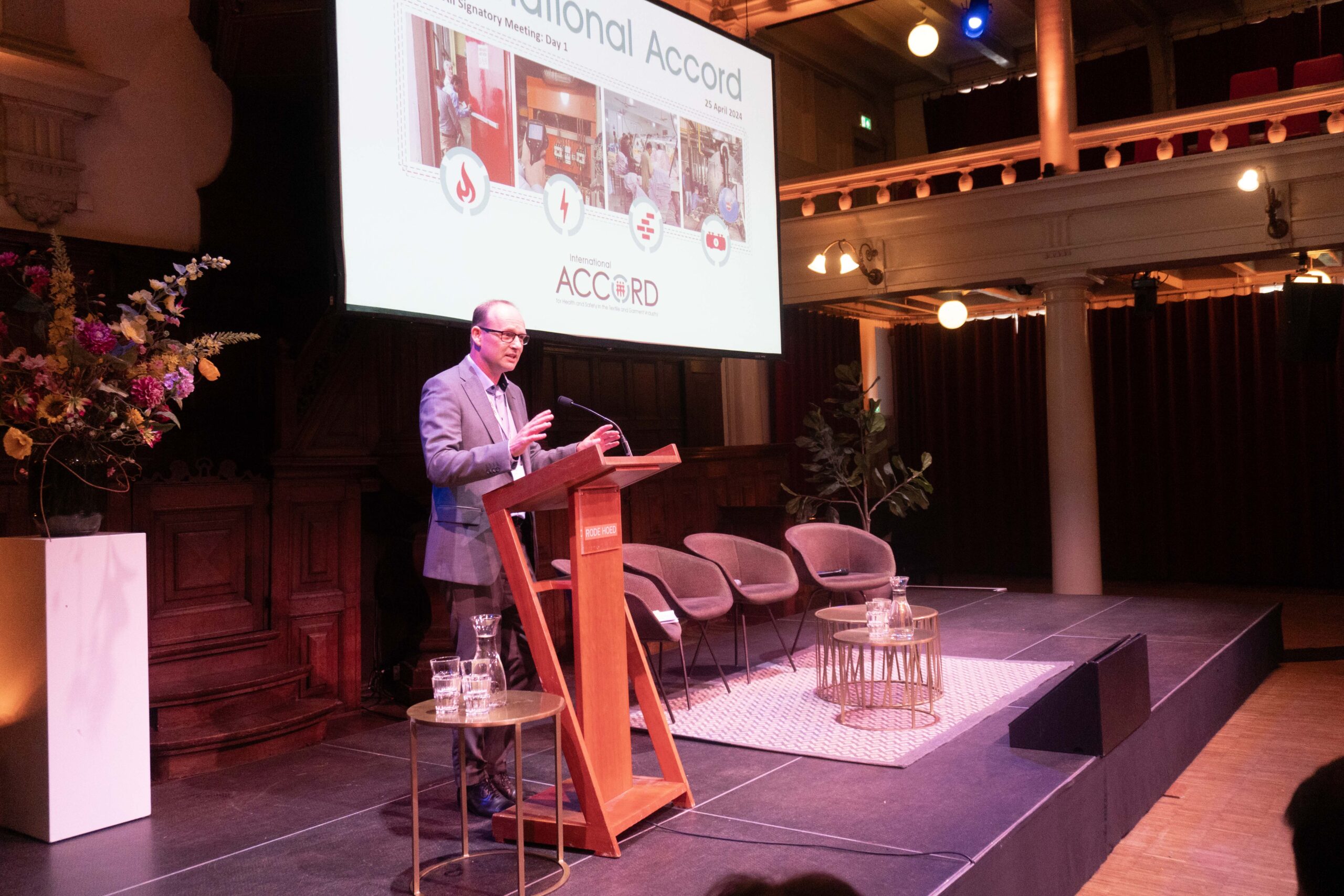
The International Accord held its All Signatory Meeting 2024 on the 25 and 26 of April 2024 at the Rode Hoed in Amsterdam, the Netherlands. The purpose of the event was to update participants about the key developments on the operations and implementation of the Accord’s Country-Specific Safety Programs (CSSPs) in Bangladesh and Pakistan.
25 April marked the first day of the All-Signatory Meeting in Amsterdam, where our brand, trade union, and NGO signatories came together to discuss the progress and way ahead on the International Accord and the Bangladesh Safety Agreement.
Set against the background of the 11th anniversary of the Rana Plaza collapse on 24 April, the day started with remarks by Christina Hajagos-Clausen (IndustriALL Global Union) and Joachim Juette-Overmeyer (Otto Group).
Dorothy Lovell (Sector Lead – Garment & Footwear, OECD Centre for Responsible Business Conduct), in her keynote address, underscored the Accord’s role as a flagship initiative that translates the OECD’s Due Diligence Guidance into action. She described it as a tool for accountability and an example of how due diligence creates impactful change by preventing harm, improving lives, and ensuring business continuity. Lovell added:
“…when brands jointly invest in the conditions for decent work in their supply chain, there are results, and those results are good for workers and business.”
The day included updates on the International Accord’s operations by Joris Oldenziel and Koen Oosterom.
Veronique Camerer and Kristine Drew conducted a session that encouraged brands to share their perspectives and insights on the steps they take to fulfill their obligations on financing remediation and the Accord’s workplace programs.
The RMG Sustainability Council (RSC)’s Abdul Haque, Shah Sefat Uddin Ahmed and Md Hassan Nawazis shared a comprehensive presentation on the remediation progress in Bangladesh, highlighting key developments such as the expansion of the complaints mechanism and the envisioned environmental program.
The final session comprised reflections on the Bangladesh Safety Program by Miran Ali (BGMEA), Ineke Zeldenrust (Clean Clothes Campaign), Christina Hajagos-Clausen, and Joachim Juette-Overmeyer, followed by concluding remarks delivered by PVH Corp.’s Michael Bride.
We thank all attendees for their participation, and Olivia Windham Stewart for moderating the sessions. We are also grateful to our venue partners, the Amerpodia team for their organisational support on this event.
For more information, contact:
- media@internationalaccord.org
- Mini Dixit, Communications Advisor: mini.dixit@internationalaccord.org
Related updates
October 16, 2025
Safe exits, unlocked gates, functioning alarms, effective fire separation, and strong emergency preparedness are essential for the health and safety of every worker, within and beyond the garment industry.
August 11, 2025
This briefing provides updates on the number of signatory brands and covered factories, the rollout of Workplace Programs, and recent events organised by the Pakistan Accord team.
May 28, 2025
The International Accord’s All Signatory Meeting was dedicated to insights on the progress and operations of the Accord’s country program in Bangladesh and Pakistan, alongside exploring opportunities to expand the Accord’s scope and impact.
October 23, 2025
On 23 October 2025, the Pakistan Accord hosted a Brand-Supplier Roundtable at the Avari Hotel in Lahore, bringing together over 50 brand representatives and 30 key suppliers.
October 16, 2025
Safe exits, unlocked gates, functioning alarms, effective fire separation, and strong emergency preparedness are essential for the health and safety of every worker, within and beyond the garment industry.
May 28, 2025
The International Accord’s All Signatory Meeting was dedicated to insights on the progress and operations of the Accord’s country program in Bangladesh and Pakistan, alongside exploring opportunities to expand the Accord’s scope and impact.
11 years since the Rana Plaza collapse in Bangladesh
Updates
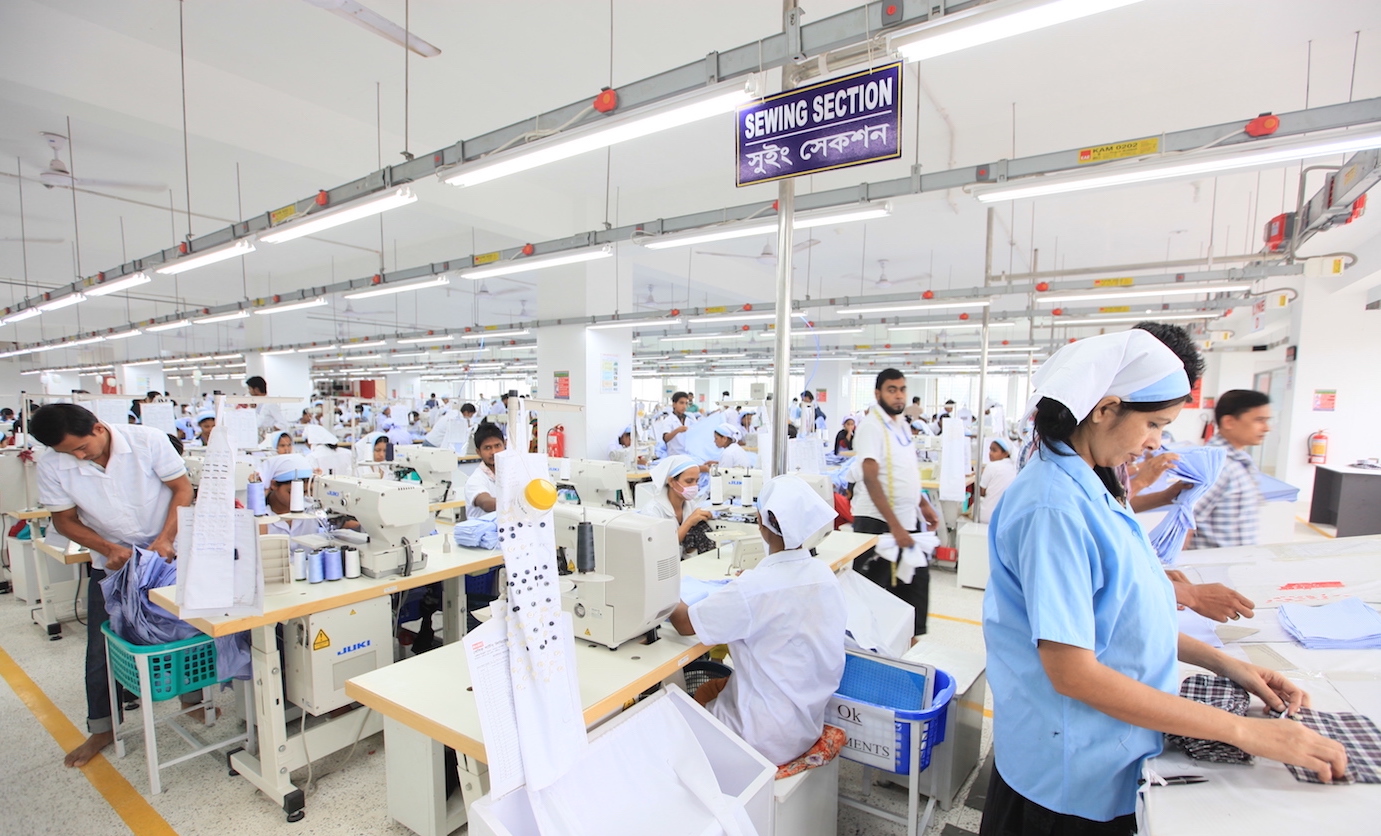
Today marks the 11th anniversary of the tragic collapse of the Rana Plaza building in Dhaka, Bangladesh, which claimed the lives of over 1,100 garment workers and left thousands critically injured. On this solemn anniversary, the Accord pays tribute to the victims, the survivors, and those enduring the impact of one of the most devastating workplace disasters in modern history.
Alongside our signatories and stakeholders, the Accord remains committed to ensuring that garment factory workers are safeguarded with a safe and healthy work environment as a fundamental principle and right at work.
We urge more brands to join us in this effort by signing the Accord and putting worker safety at the core of their garment supply chains.
For more information, contact:
- media@internationalaccord.org
- Mini Dixit, Communications Officer: mini.dixit@internationalaccord.org
Related updates
October 16, 2025
Safe exits, unlocked gates, functioning alarms, effective fire separation, and strong emergency preparedness are essential for the health and safety of every worker, within and beyond the garment industry.
August 11, 2025
This briefing provides updates on the number of signatory brands and covered factories, the rollout of Workplace Programs, and recent events organised by the Pakistan Accord team.
May 28, 2025
The International Accord’s All Signatory Meeting was dedicated to insights on the progress and operations of the Accord’s country program in Bangladesh and Pakistan, alongside exploring opportunities to expand the Accord’s scope and impact.
October 23, 2025
On 23 October 2025, the Pakistan Accord hosted a Brand-Supplier Roundtable at the Avari Hotel in Lahore, bringing together over 50 brand representatives and 30 key suppliers.
October 16, 2025
Safe exits, unlocked gates, functioning alarms, effective fire separation, and strong emergency preparedness are essential for the health and safety of every worker, within and beyond the garment industry.
May 28, 2025
The International Accord’s All Signatory Meeting was dedicated to insights on the progress and operations of the Accord’s country program in Bangladesh and Pakistan, alongside exploring opportunities to expand the Accord’s scope and impact.
Start of capacity building program for Pakistan Accord engineers
Updates
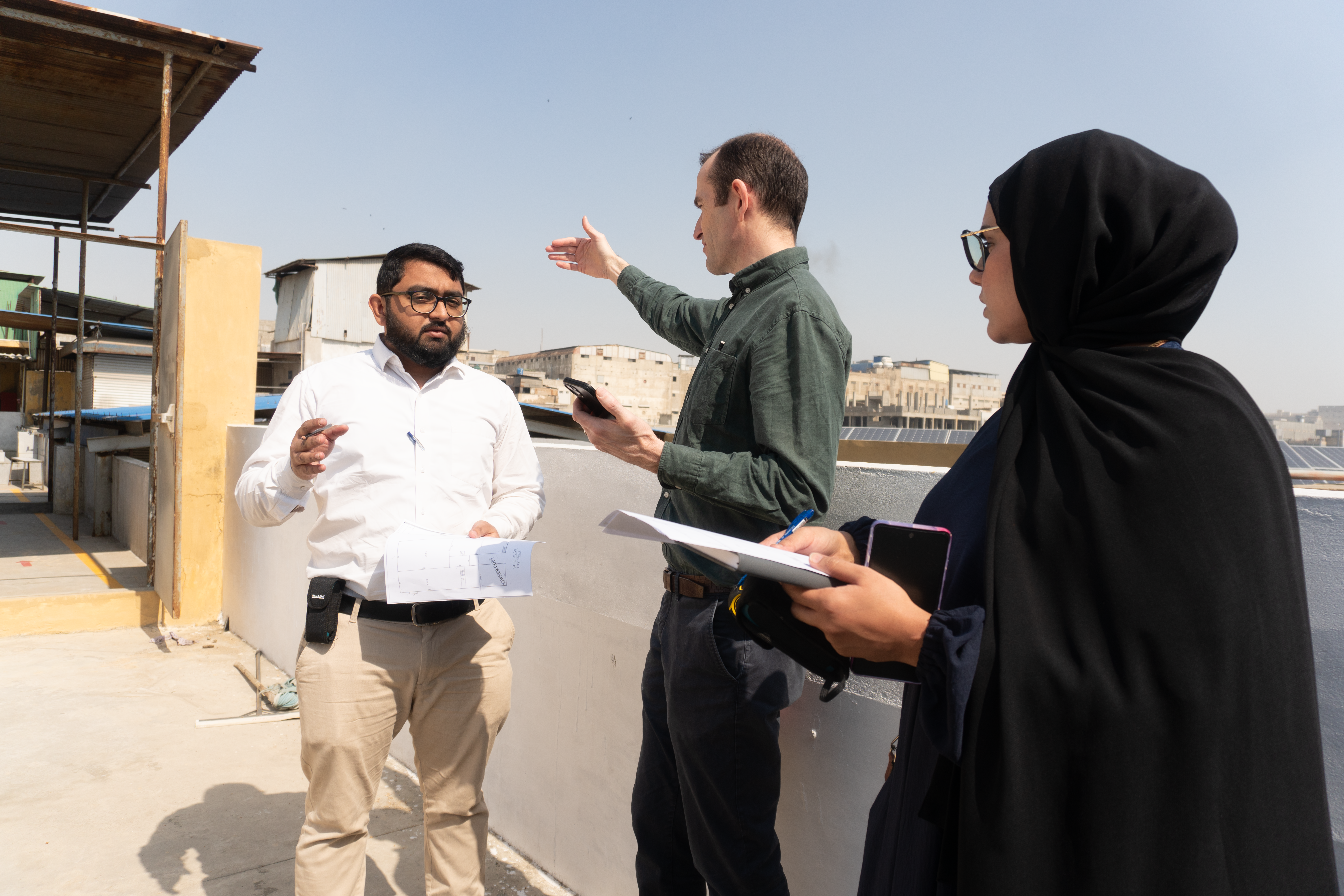
Marking a milestone in the rollout of the International Accord’s country program in Pakistan, newly hired engineers are undergoing training. The capacity-building program aims to equip engineers with the technical knowledge and practical skills necessary to effectively conduct factory inspections and produce reports that identify remediation required under the Pakistan Accord.
The program is currently underway in Karachi, Faisalabad and Lahore, Pakistan, and spans 9 weeks (with a two week break over Eid). In this inaugural batch, 14 engineers (including 5 fire engineers, 5 electrical engineers, 4 structural engineers) are undergoing training facilitated by engineering consultants, alongside George Faller (Chief Safety Officer, Pakistan Accord) and Colm Quinn (Head of Operations, International Accord).
The Capacity Building Program
The capacity building program comprises two phases focusing on classroom and on-the-job training. The initial three days emphasise introducing engineers to key Accord principles, the Pakistan Accord Building Standard, and essential key safety inspections features. Additionally, classroom sessions familiarise engineers with key safety hazards to look out for during factory assessments, and capturing this key information in reports used to develop factory Corrective Action Plans (CAPs).
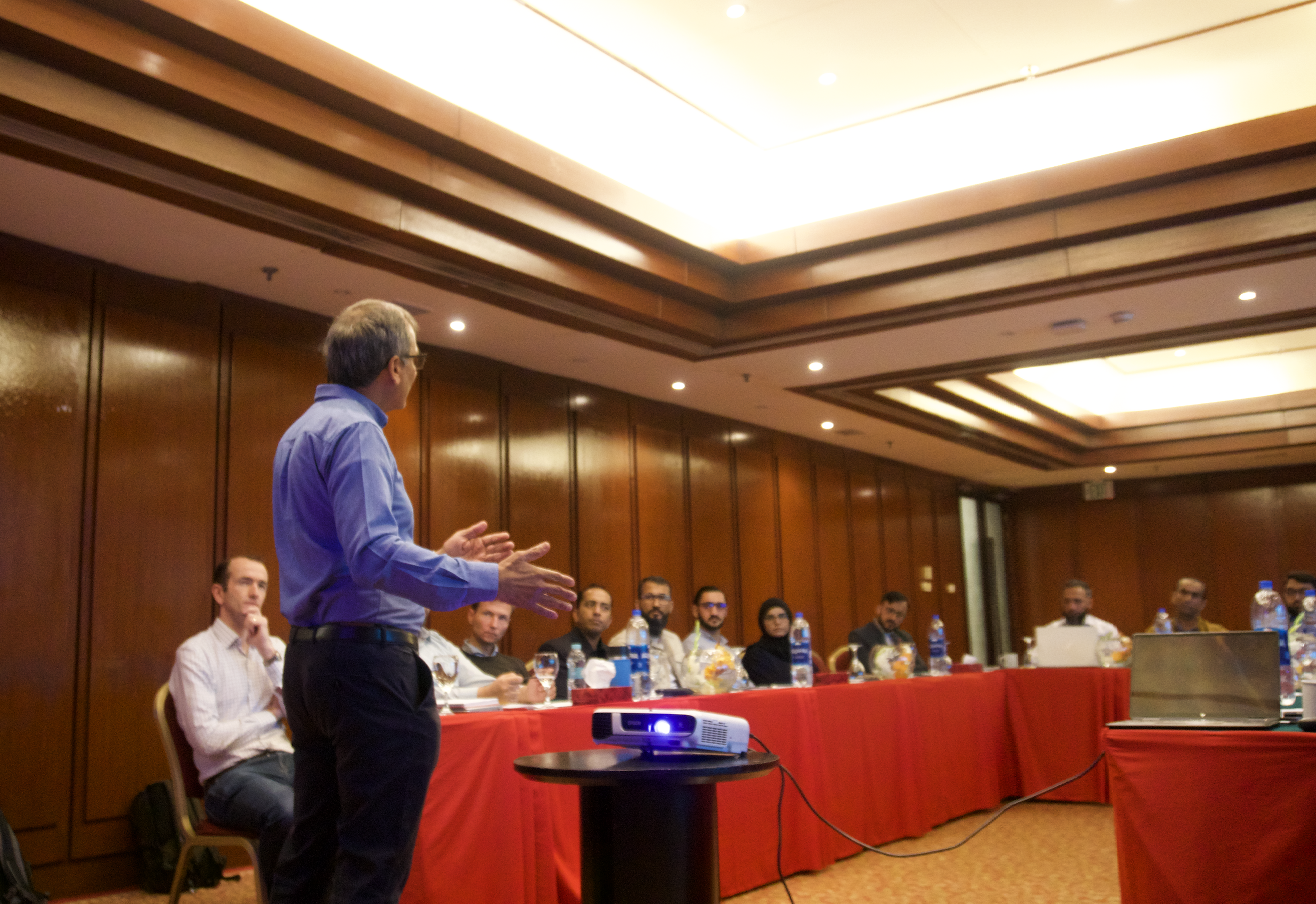
Following classroom sessions, engineers are currently undergoing a nine-week on-site building inspection and reporting training.
Factory Inspections
As part of the on-site training, trainee engineers joined the fire, electrical, and structural safety inspections at least 10 factories covered under the Pakistan Accord. Based on the complexity of the factories, these visits typically lasted one day.
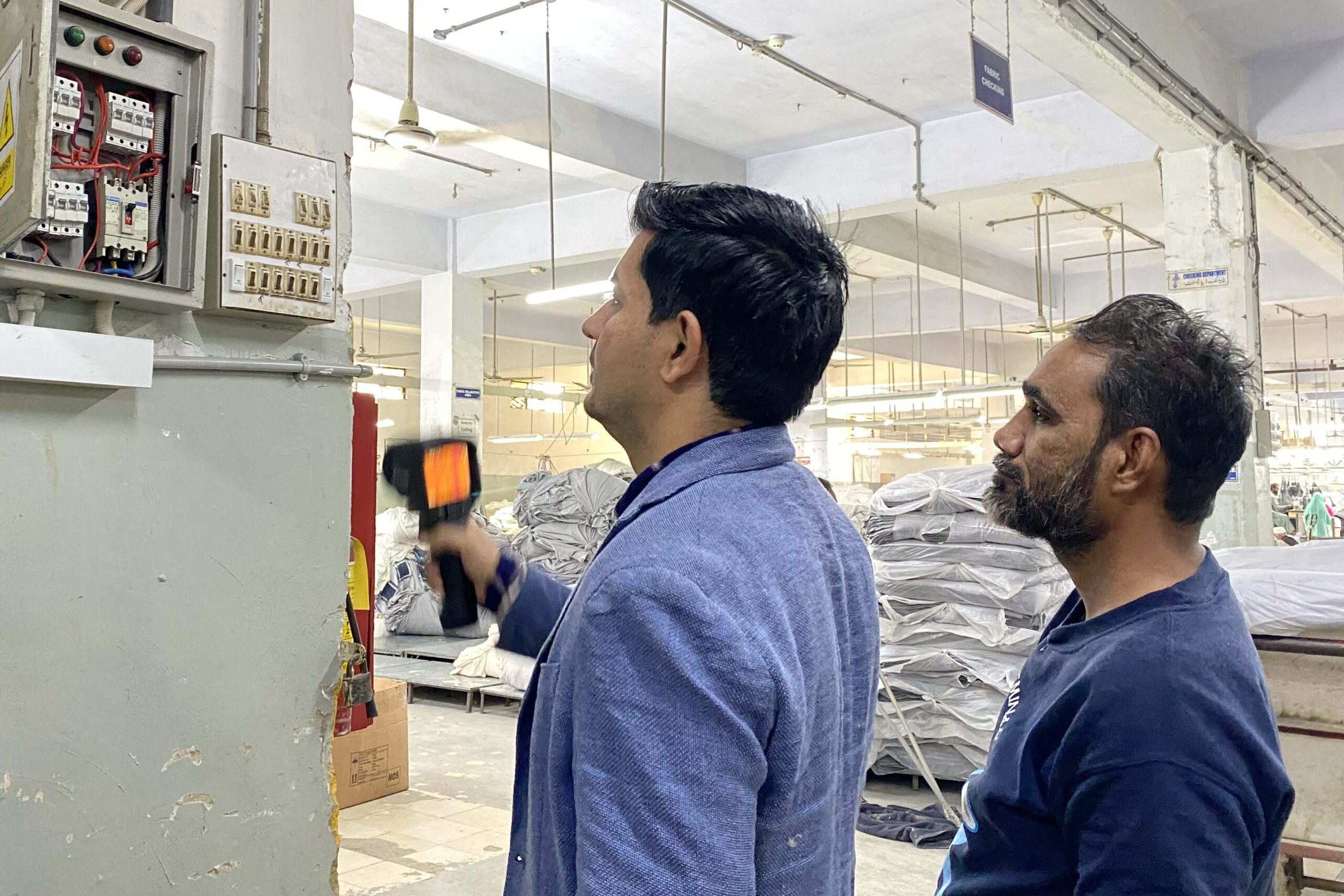
The inspection day started with an opening meeting with factory management, followed by a walk around the building exterior and through all interior rooms and spaces. The team also conducted non-destructive testing as required, for example, measuring concrete hardness and thermographic scanning to identify electrical hotspots.
These initial inspections are part of the Pakistan Accord’s inspections and remediation program that began in November 2023. This recent round of inspections brings the number of factories covered under the Pakistan Accord to receive initial inspections to over 25 factories.
Resources:
Related updates
October 16, 2025
Safe exits, unlocked gates, functioning alarms, effective fire separation, and strong emergency preparedness are essential for the health and safety of every worker, within and beyond the garment industry.
August 11, 2025
This briefing provides updates on the number of signatory brands and covered factories, the rollout of Workplace Programs, and recent events organised by the Pakistan Accord team.
May 28, 2025
The International Accord’s All Signatory Meeting was dedicated to insights on the progress and operations of the Accord’s country program in Bangladesh and Pakistan, alongside exploring opportunities to expand the Accord’s scope and impact.
October 23, 2025
On 23 October 2025, the Pakistan Accord hosted a Brand-Supplier Roundtable at the Avari Hotel in Lahore, bringing together over 50 brand representatives and 30 key suppliers.
October 16, 2025
Safe exits, unlocked gates, functioning alarms, effective fire separation, and strong emergency preparedness are essential for the health and safety of every worker, within and beyond the garment industry.
May 28, 2025
The International Accord’s All Signatory Meeting was dedicated to insights on the progress and operations of the Accord’s country program in Bangladesh and Pakistan, alongside exploring opportunities to expand the Accord’s scope and impact.
Brand-Supplier meetings in Pakistan highlight collaboration opportunities on workplace health and safety
Updates
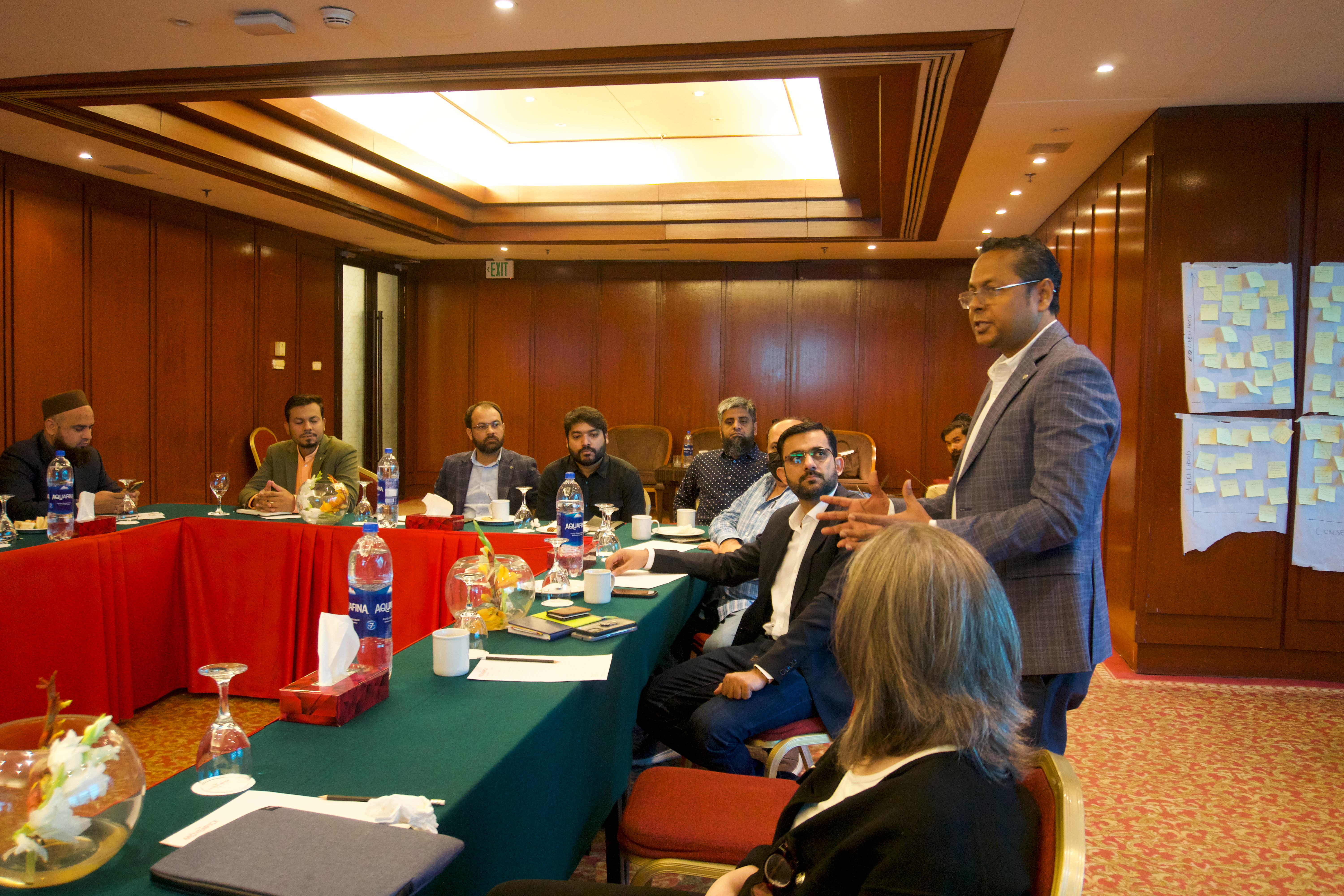
The International Accord Secretariat alongside the Pakistan Accord team organised a series of five brand-supplier meetings in Lahore and Karachi between 5 – 7 March 2024.
The purpose of these meetings was to to provide information about the Accord and its key programs for suppliers, and enhance engagement between brands that have signed the Pakistan Accord and their Pakistani suppliers. A supplier/factory becomes part of the Accord program in Pakistan once a brand sourcing from them signs the Pakistan Accord and lists it as a supplier.
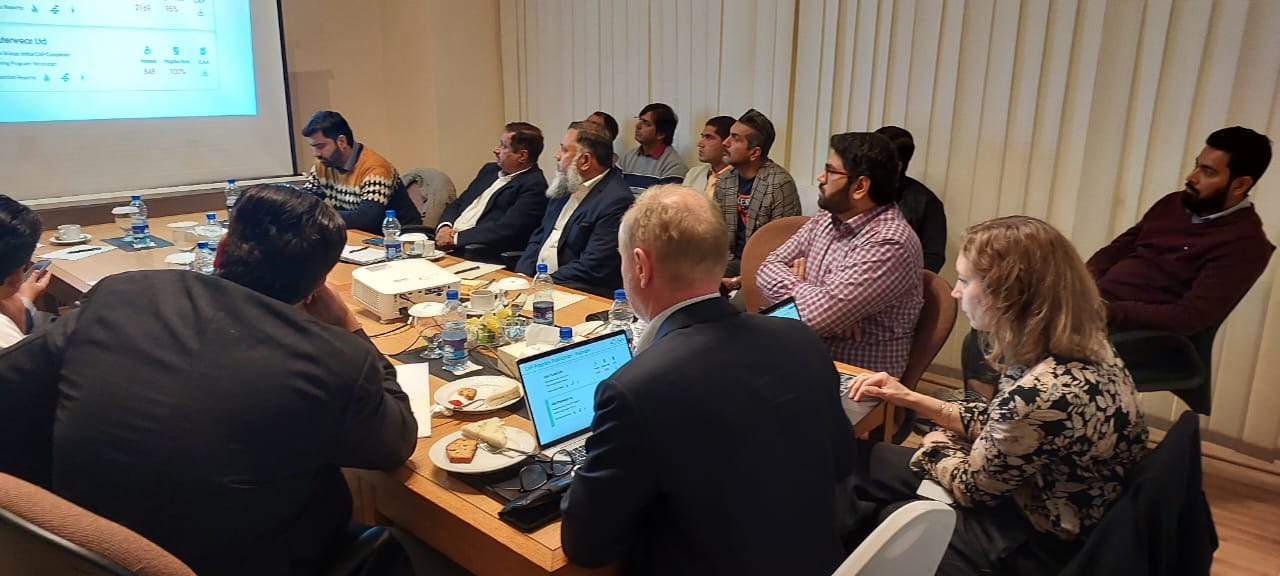
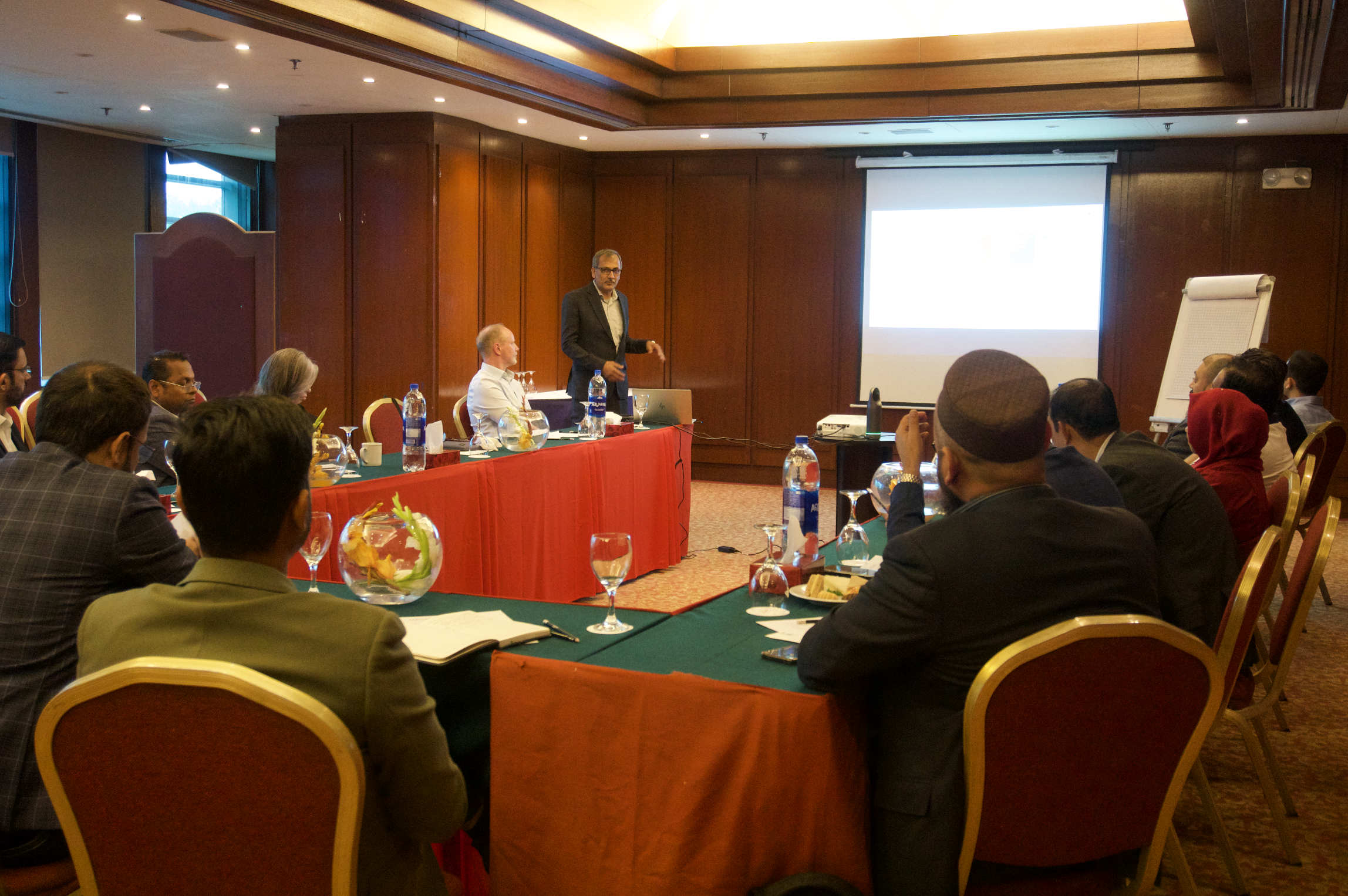
The Accord team comprising presentations by Clara Kamphorst (Stakeholder Engagement Manager), Koen Oosterom (Head of Signatory Engagement), Veronique Camerer (Deputy Director, International Accord), Kirstine Drew (Chief Complaints Officer, Pakistan Accord), and Zulfiqar Shah (Country Manager, Pakistan Accord) shared insights on:
- The health and safety topics covered under the Pakistan Accord.
- The impact of the program for suppliers and the support available for them.
- The features, programs, and reasons to participate in the Pakistan Accord.
The sessions were attended by over 100 Pakistani suppliers and Pakistan Accord signatory brands including Adidas, Primark, GAP Inc. and the Boohoo Group.
Speaking about their participation at the event, Sam Leach from the Boohoo Group said:
The Boohoo Group sees the Accord framework as a great opportunity for our factories, not only to improve their building, electrical, fire, and boiler safety standards but also to enhance worker safety standards as a whole. We have seen the great work done in Bangladesh over the last 10+ years and we look forward to continuing to collaborate with The Accord and other international retailers to improve factory standards. As a part of these collaborative efforts, the Boohoo Group and The International Accord organised two brand-supplier meetings in Pakistan for Boohoo Group suppliers and factories in Karachi and Lahore. These meetings were well received by the suppliers with follow-up expressions of gratitude. We are encouraged to see that all our suppliers recognise the importance of the Pakistan Accord and are fully on board with the program.
We thank all attendees for their participation in these meetings and look forward to our continued engagement.
Resources:
Related updates
October 16, 2025
Safe exits, unlocked gates, functioning alarms, effective fire separation, and strong emergency preparedness are essential for the health and safety of every worker, within and beyond the garment industry.
August 11, 2025
This briefing provides updates on the number of signatory brands and covered factories, the rollout of Workplace Programs, and recent events organised by the Pakistan Accord team.
May 28, 2025
The International Accord’s All Signatory Meeting was dedicated to insights on the progress and operations of the Accord’s country program in Bangladesh and Pakistan, alongside exploring opportunities to expand the Accord’s scope and impact.
October 23, 2025
On 23 October 2025, the Pakistan Accord hosted a Brand-Supplier Roundtable at the Avari Hotel in Lahore, bringing together over 50 brand representatives and 30 key suppliers.
October 16, 2025
Safe exits, unlocked gates, functioning alarms, effective fire separation, and strong emergency preparedness are essential for the health and safety of every worker, within and beyond the garment industry.
May 28, 2025
The International Accord’s All Signatory Meeting was dedicated to insights on the progress and operations of the Accord’s country program in Bangladesh and Pakistan, alongside exploring opportunities to expand the Accord’s scope and impact.
100 Global Brands and Retailers Commit to the Pakistan Accord
Updates
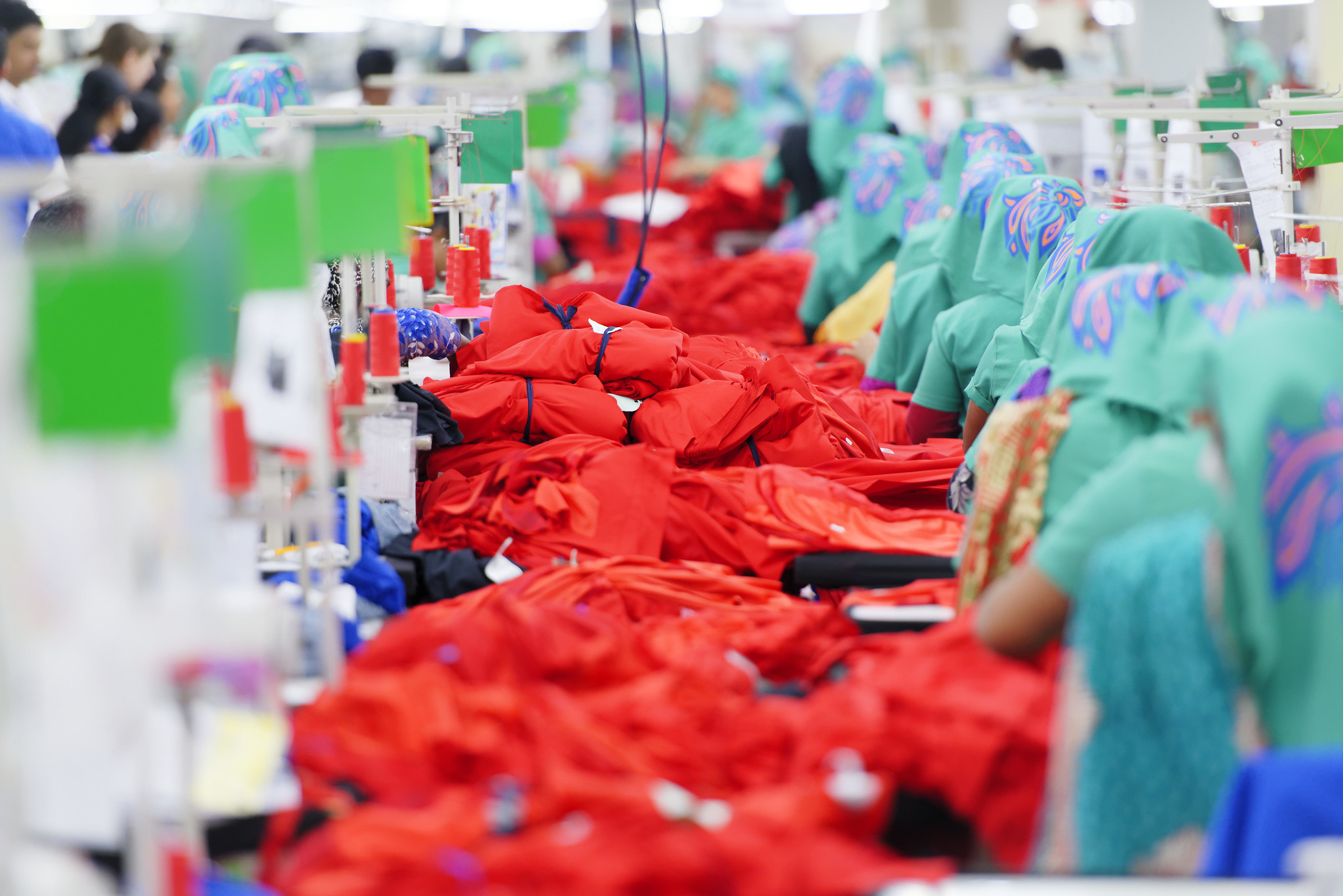
100 global brands and retailers have committed to the Pakistan Accord on Health and Safety in the Textile and Garment Industry (Pakistan Accord). Original Marines, Turner Bianca, S.O.K/ Group, Sun Garden,Tex Idea and MPL Home are among the latest brands to sign the agreement, which focuses on enhancing workplace health and safety in the Pakistani textile and garment industry.
The Pakistan Accord was established in January 2023 and is a Country Specific Safety Program (CSSP) being rolled-out as part of the renewed International Accord.
The Pakistan Accord covers all Cut-Make-Trim (CMT) facilities, namely Ready-Made Garments (RMG), home textile, fabric, and knit accessories suppliers, producing for Pakistan Accord signatory companies. Fabric mills will also be included at a later stage. Pakistan Accord signatory brands source from over 500 factories in Pakistan. Initial inspections at a first batch of factories supplying Pakistan Accord brands were conducted from October to December 2023.
Brands that sign the Pakistan Accord are committed to maintaining a long-term sourcing relationship with Pakistan and supporting their Pakistani suppliers in the journey to improve health and safety. We invite all garment and textile brands and retailers sourcing from Pakistan to sign the Pakistan Accord and contribute to a safe and sustainable textile and garment industry.
Resources:
Related updates
October 16, 2025
Safe exits, unlocked gates, functioning alarms, effective fire separation, and strong emergency preparedness are essential for the health and safety of every worker, within and beyond the garment industry.
August 11, 2025
This briefing provides updates on the number of signatory brands and covered factories, the rollout of Workplace Programs, and recent events organised by the Pakistan Accord team.
May 28, 2025
The International Accord’s All Signatory Meeting was dedicated to insights on the progress and operations of the Accord’s country program in Bangladesh and Pakistan, alongside exploring opportunities to expand the Accord’s scope and impact.
October 23, 2025
On 23 October 2025, the Pakistan Accord hosted a Brand-Supplier Roundtable at the Avari Hotel in Lahore, bringing together over 50 brand representatives and 30 key suppliers.
October 16, 2025
Safe exits, unlocked gates, functioning alarms, effective fire separation, and strong emergency preparedness are essential for the health and safety of every worker, within and beyond the garment industry.
May 28, 2025
The International Accord’s All Signatory Meeting was dedicated to insights on the progress and operations of the Accord’s country program in Bangladesh and Pakistan, alongside exploring opportunities to expand the Accord’s scope and impact.
Over 100 brands sign the Bangladesh Safety Agreement
Updates

A total of 102 global brands and retailers have so far signed the Bangladesh Safety Agreement with Fast Retailing Co. Ltd, River Island and Triumph & Sloggi, among the latest signatories.
The Bangladesh Safety Agreement took effect as an Addendum to the renewed International Accord on 1 November 2023. Signatory parties to Bangladesh Safety Program commit to the principles enshrined in the 2023 International Accord, and as stipulated in the 2013, 2018 and the 2021 Accord agreements on Fire and Building Safety in Bangladesh.
The inspections and remediation program, safety committee and safety training program, complaints mechanism, and reporting and disclosure requirements of the Accord are implemented in Bangladesh by the RMG Sustainability Council (RSC), which was established in June 2020.
We extend an invitation to all garment and textile brands sourcing from Bangladesh to sign the Bangladesh Safety Agreement and contribute to enhancing health and safety within the textile and garment industry.
Resources:
Related updates
October 16, 2025
Safe exits, unlocked gates, functioning alarms, effective fire separation, and strong emergency preparedness are essential for the health and safety of every worker, within and beyond the garment industry.
August 11, 2025
This briefing provides updates on the number of signatory brands and covered factories, the rollout of Workplace Programs, and recent events organised by the Pakistan Accord team.
May 28, 2025
The International Accord’s All Signatory Meeting was dedicated to insights on the progress and operations of the Accord’s country program in Bangladesh and Pakistan, alongside exploring opportunities to expand the Accord’s scope and impact.
October 23, 2025
On 23 October 2025, the Pakistan Accord hosted a Brand-Supplier Roundtable at the Avari Hotel in Lahore, bringing together over 50 brand representatives and 30 key suppliers.
October 16, 2025
Safe exits, unlocked gates, functioning alarms, effective fire separation, and strong emergency preparedness are essential for the health and safety of every worker, within and beyond the garment industry.
May 28, 2025
The International Accord’s All Signatory Meeting was dedicated to insights on the progress and operations of the Accord’s country program in Bangladesh and Pakistan, alongside exploring opportunities to expand the Accord’s scope and impact.
Over 50 Brands re-sign the New International Accord; 46 Brands Commit to the Bangladesh Safety Agreement
Updates

A total of 56 global brands and retailers have so far signed the renewed International Accord, 48 have signed the Bangladesh Safety Agreement and 88 have signed the Pakistan Accord. Multiple brands are in the final stages of internal reviews and are expected to sign the agreements in the coming days. The latest list of signatories is available here.
Brands and trade unions renewed their commitments for an extended three-year term, with an automatic renewal of another three years making it the longest Accord commitment to date. The International Accord will serve as the framework for implementing the Accord’s Country-Specific Safety Programs (CSSPs), currently in Bangladesh and Pakistan, as well as any future programs in other garment producing countries. These programs will be implemented through separate agreements as CSSP Addendums to the International Accord.
Additionally, the brands and trade unions finalised the new Bangladesh Safety Agreement to further their efforts in enhancing health and safety within the Bangladeshi garment industry through the RMG Sustainability Council (RSC).
Both agreements entered into force on 1 November 2023.
Prior to these two new agreements, in December 2022 Accord signatories decided to establish a new workplace health and safety program called the Pakistan Accord for an initial term of three years starting on 1 January 2023.
We invite all garment and textile brands and retailers sourcing from Bangladesh and Pakistan to join the signatories to these agreements. We encourage you to re-sign the new International Accord, the Bangladesh Safety Agreement, as well as the Pakistan Accord, and reaffirm your commitment to our collective mission of a safe and sustainable textile and garment industry.
Resources:
Related updates
October 16, 2025
Safe exits, unlocked gates, functioning alarms, effective fire separation, and strong emergency preparedness are essential for the health and safety of every worker, within and beyond the garment industry.
August 11, 2025
This briefing provides updates on the number of signatory brands and covered factories, the rollout of Workplace Programs, and recent events organised by the Pakistan Accord team.
May 28, 2025
The International Accord’s All Signatory Meeting was dedicated to insights on the progress and operations of the Accord’s country program in Bangladesh and Pakistan, alongside exploring opportunities to expand the Accord’s scope and impact.
October 23, 2025
On 23 October 2025, the Pakistan Accord hosted a Brand-Supplier Roundtable at the Avari Hotel in Lahore, bringing together over 50 brand representatives and 30 key suppliers.
October 16, 2025
Safe exits, unlocked gates, functioning alarms, effective fire separation, and strong emergency preparedness are essential for the health and safety of every worker, within and beyond the garment industry.
May 28, 2025
The International Accord’s All Signatory Meeting was dedicated to insights on the progress and operations of the Accord’s country program in Bangladesh and Pakistan, alongside exploring opportunities to expand the Accord’s scope and impact.
Read the International Accord, Bangladesh Safety Program and Pakistan Accord Agreements
Updates
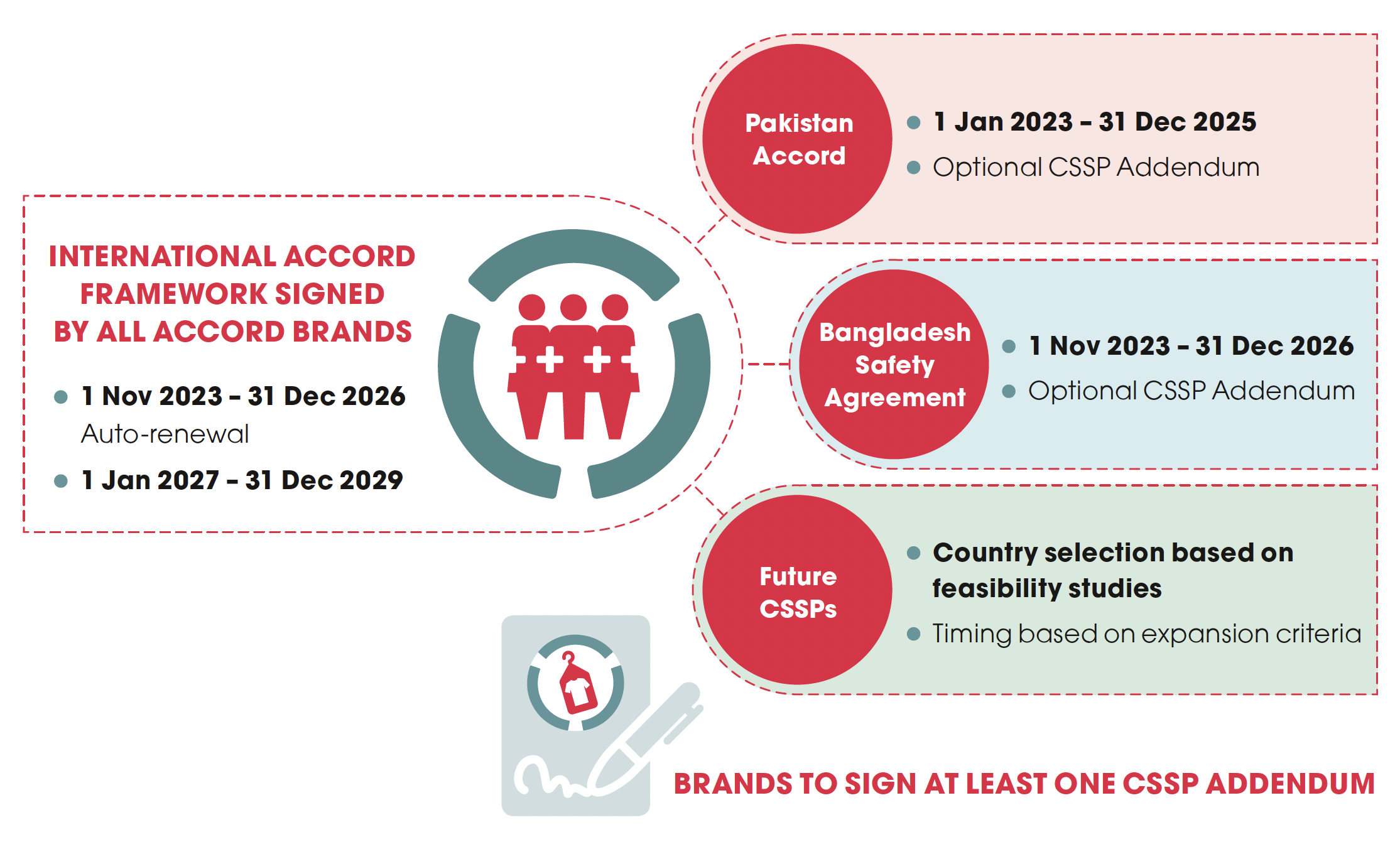
Highlights
-
Negotiations between representatives of global brands and trade union signatories to the International Accord have resulted in a new framework agreement. This agreement reaffirms their commitment to enhancing health and safety throughout the supply chains of the brand signatories.
-
Additionally, both the brands and trade unions finalised a new agreement to further their efforts in enhancing health and safety within the Bangladeshi garment industry through the RMG Sustainability Council (RSC).
-
The Pakistan Accord which was signed in January 2023 for a three-year period, will continue as an Addendum to the International Accord.
This post contains an overview of the agreements that form the basis of the Accord’s work in signatory supply chains in Bangladesh, Pakistan, and other countries in the future.
International Accord
The International Accord for Health and Safety in the Garment and Textile Industry (International Accord) is a legally binding framework agreement between garment brands and trade unions to ensure worker health and safety in the textile and garment industry. The agreement will serve as the framework for implementing the Accord’s Country-Specific Safety Programs (CSSPs), currently in Bangladesh and Pakistan, as well as any future programs in other garment producing countries.
The terms of each CSSP will be laid out in the Addendums to the International Accord. The CSSP Addendums build on the core principles, standards and protocols outlined in the International Accord.
Bangladesh Safety Program
The Bangladesh Agreement on Health and Safety in the Textile and Garment Industry (Bangladesh Safety Program) is an Addendum to the International Accord.
The Bangladesh Safety Program is a legally binding agreement between garment brands and trade unions to ensure worker health and safety in the Bangladeshi textile and garment industry. The signatory parties to Bangladesh Safety Program commit to the principles enshrined in the 2023 International Accord, and as stipulated in the 2013, 2018 and the 2021 Accord agreements on Fire and Building Safety in Bangladesh.
The inspections and remediation program, safety committee and safety training program, safety complaints mechanism, and reporting and disclosure requirements of the Accord will continue to be implemented in Bangladesh by the RMG Sustainability Council (RSC), which was established in June 2020.
More information about the origins, scope, key components, and resources related to the health and safety program in Bangladesh can be found here.
Pakistan Accord
In December 2022, Accord signatories agreed to establish a new workplace safety program in Pakistan for an initial term of 3 years, starting in 2023. The resulting agreement is called the Pakistan Accord on Health & Safety in the Textile & Garment Industry (Pakistan Accord) and outlines the envisaged program scope and key provisions to which company signatories commit to. The Pakistan Accord will continue as a CSSP Addendum under the International Accord.
The Pakistan Accord took effect on 1 January 2023 to ensure health and safety in the Pakistani textile and garment industry. Signatories to the Pakistan Accord are committed to fulfilling their obligations as outlined in this agreement until its expiration on 31 December 2025, with the possibility of renewal.
More information about the origins, scope, key components, and resources related to the Pakistan Accord can be found here.
Resources
Related updates
October 16, 2025
Safe exits, unlocked gates, functioning alarms, effective fire separation, and strong emergency preparedness are essential for the health and safety of every worker, within and beyond the garment industry.
August 11, 2025
This briefing provides updates on the number of signatory brands and covered factories, the rollout of Workplace Programs, and recent events organised by the Pakistan Accord team.
May 28, 2025
The International Accord’s All Signatory Meeting was dedicated to insights on the progress and operations of the Accord’s country program in Bangladesh and Pakistan, alongside exploring opportunities to expand the Accord’s scope and impact.
October 23, 2025
On 23 October 2025, the Pakistan Accord hosted a Brand-Supplier Roundtable at the Avari Hotel in Lahore, bringing together over 50 brand representatives and 30 key suppliers.
October 16, 2025
Safe exits, unlocked gates, functioning alarms, effective fire separation, and strong emergency preparedness are essential for the health and safety of every worker, within and beyond the garment industry.
May 28, 2025
The International Accord’s All Signatory Meeting was dedicated to insights on the progress and operations of the Accord’s country program in Bangladesh and Pakistan, alongside exploring opportunities to expand the Accord’s scope and impact.
First Safety Inspections Under the Pakistan Accord
Updates
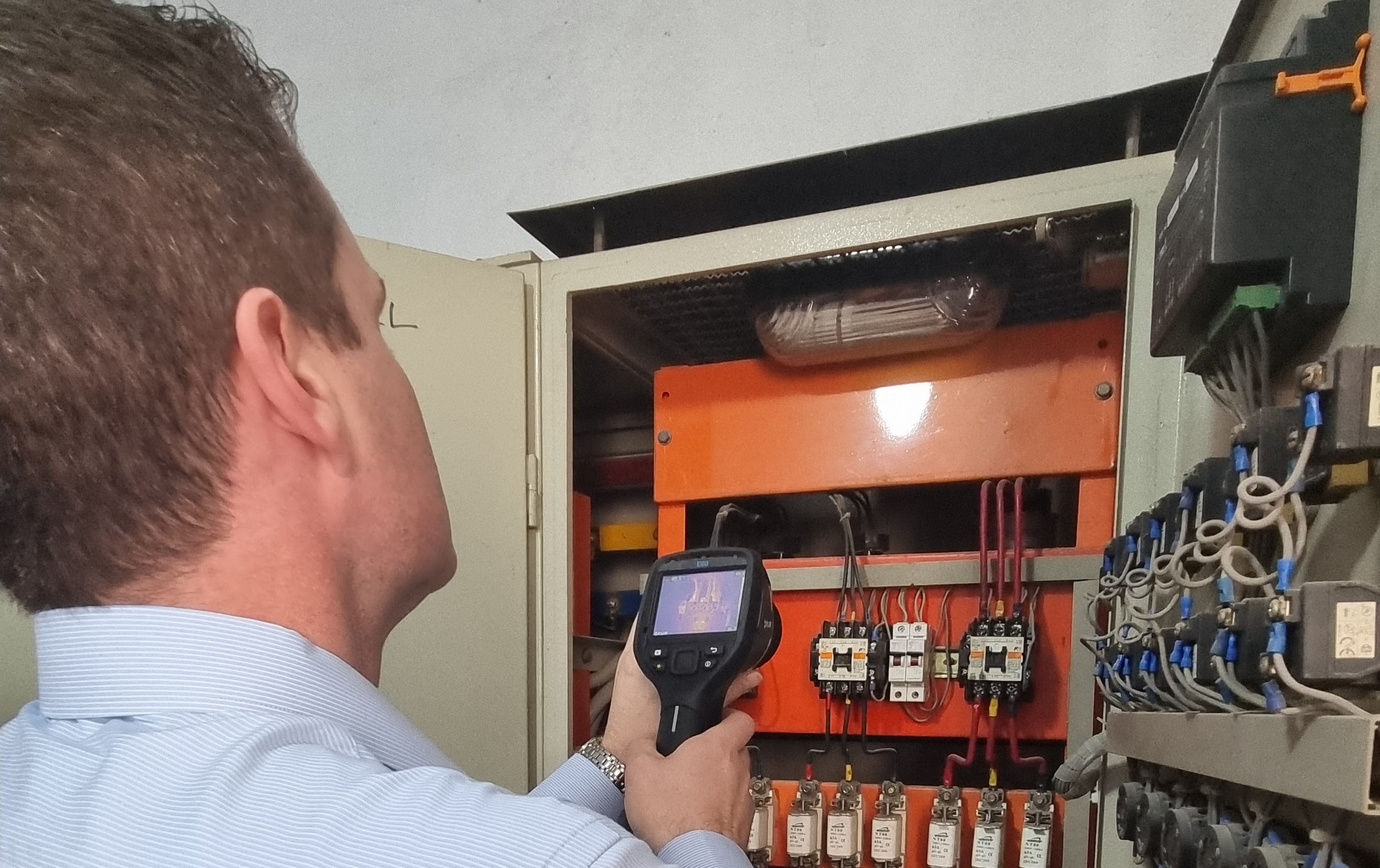
The International Accord conducted the first round of initial inspections at factories supplying to Pakistan Accord brands in Lahore and Karachi between 16 – 28 October 2023. These initial inspections mark a significant milestone in the rollout of the Pakistan Accord on Health and Safety in the Textile and Garment Industry (Pakistan Accord) that was established as a new country program under the International Accord in January 2023.
The team, comprising engineers from Arup and representatives from the International Accord, including Danielle Antonellis (Technical Advisor, Pakistan Accord), Brad Loewen (Technical Consultant & Former Chief Safety Inspector of the Bangladesh Accord), assessed fire, electrical and structural safety these supplier factories, based on the Pakistan Accord Building Standard. Zulfiqar Shah (Consultant, Pakistan Accord) and Veronique Camerer (Head of Policy & Accountability, International Accord) joined the team of engineers and conducted side meetings with a number of key local stakeholders.
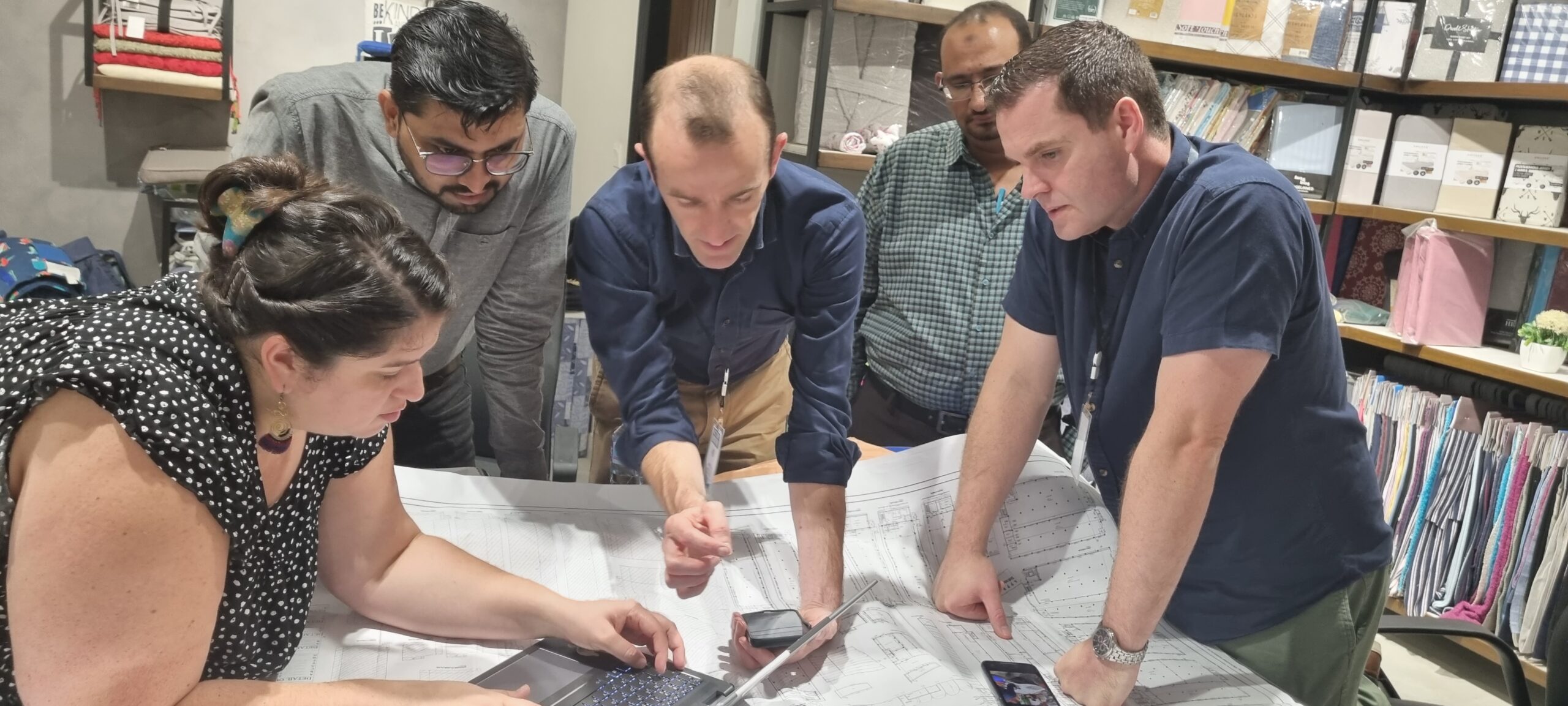
Participating Factories
The inspections were conducted at four new facilities and four facilities that were part of the pilot safety assessments conducted between November and December 2022. These participating factories demonstrated commitment to ensuring workplace safety, receptiveness to feedback, and preparedness throughout the initial inspection process. These facilities included: E&M Textiles, Mount Fuji Textiles Ltd., Kings Apparel Industries (Pvt) Ltd, Taiga Apparels, Denim Clothing Company, Fashion Knit Industries, Lucky Textile Mills Limited amongst others. We look forward to our ongoing collaboration with these factories and their contribution to ensuring health and safety in the textile and garment industry.
Support from Brands
The Accord brands sourcing from these factories participated actively in the process by communicating their support for the Pakistan Accord and explaining the importance of their suppliers’ participation in the Accord program for continuing their business relationship. Multiple Accord brand representatives also participated in the inspections as observers.
The Inspection Process
Each factory inspection lasted between 1-2 days based on the size and number of buildings and included the following steps:
- Opening meeting with factory owner and technical staff: Introductions & interview with the factory owner
- An overview of the Pakistan Accord program, the process towards developing inspection reports and corrective action plans.
- Review of pre-inspection questionnaire and documentation, such as engineering drawings, Building Permits, calculations, material and systems tests and any reports from previous assessments
- Scheduling & coordination of the fire alarm test
- Inspection of the building exterior and all interior rooms and spaces: 3 separate teams (fire, electrical, structural) inspected the building and assessed fire and building safety of all rooms and spaces.
- Testing: The teams carried out testing as required e.g., ferro-scanning (measuring rebar size in concrete structures), Schmidt Hammer test (measuring concrete strength), thermographic scanning (to identify electrical hotspots). The engineering team also requested the factory team to operate the fire alarm and fire pump systems.
- Closing meeting: Discussion between the Accord team and factory on main observations & next steps.
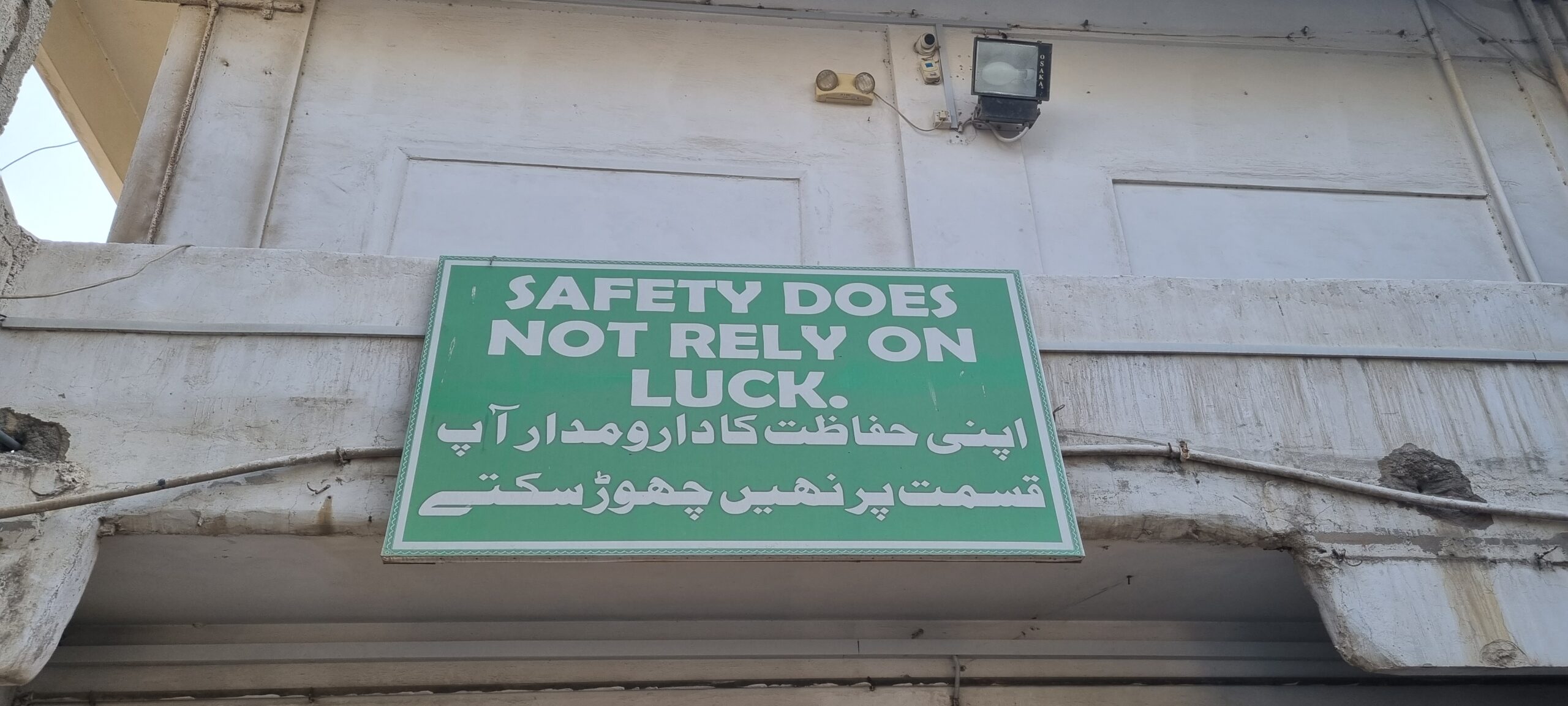
Next Steps
- Inspection reports will be prepared by the engineers and shared with the factory and Accord brands in 4-6 weeks, varying by complexity.
- Post-inspection meetings with the factories to discuss findings and remediation.
- Development of Corrective Action Plans (CAPs) with the support of Accord brands.
- CAP publication on the Accord website.
Background
Under the Pakistan Accord, all factories supplying to brand signatories will be inspected by independent engineers specialised in fire, structural, electrical, and boiler safety. These engineers assess the factories’ compliance with the Pakistan Accord Building Standard and produce reports of the safety hazards they identify at factories.
The scope of these safety inspections is as follows:
-
- Fire safety: to assess the adequacy of fire prevention, fire containment, early warning systems, and safe egress in case of fire.
- Structural safety: to assess the adequacy of engineering assessments, comparison of design drawings with the actual building, and adequacy of load management plans.
- Electrical safety: to assess the adequacy of cabling and wiring in the factory, capacity of staff to maintain electrical safety, risk or occurrence of hotspots, and fire risk from accumulation of dust and lint around electrical components.
- Hazardous Materials: to assess the use, storage, and handling of chemicals or substances that are classified as a physical hazard material or a health hazard material, whether the chemical or substance is in usable or waste condition.
- Boiler safety: to assess the external and internal condition, installation configuration, and safety monitoring system of each boiler in the factory. Boiler inspections will begin once adequate local capacity to conduct such inspections is achieved.
Resources
Related updates
October 16, 2025
Safe exits, unlocked gates, functioning alarms, effective fire separation, and strong emergency preparedness are essential for the health and safety of every worker, within and beyond the garment industry.
August 11, 2025
This briefing provides updates on the number of signatory brands and covered factories, the rollout of Workplace Programs, and recent events organised by the Pakistan Accord team.
May 28, 2025
The International Accord’s All Signatory Meeting was dedicated to insights on the progress and operations of the Accord’s country program in Bangladesh and Pakistan, alongside exploring opportunities to expand the Accord’s scope and impact.
October 23, 2025
On 23 October 2025, the Pakistan Accord hosted a Brand-Supplier Roundtable at the Avari Hotel in Lahore, bringing together over 50 brand representatives and 30 key suppliers.
October 16, 2025
Safe exits, unlocked gates, functioning alarms, effective fire separation, and strong emergency preparedness are essential for the health and safety of every worker, within and beyond the garment industry.
May 28, 2025
The International Accord’s All Signatory Meeting was dedicated to insights on the progress and operations of the Accord’s country program in Bangladesh and Pakistan, alongside exploring opportunities to expand the Accord’s scope and impact.

